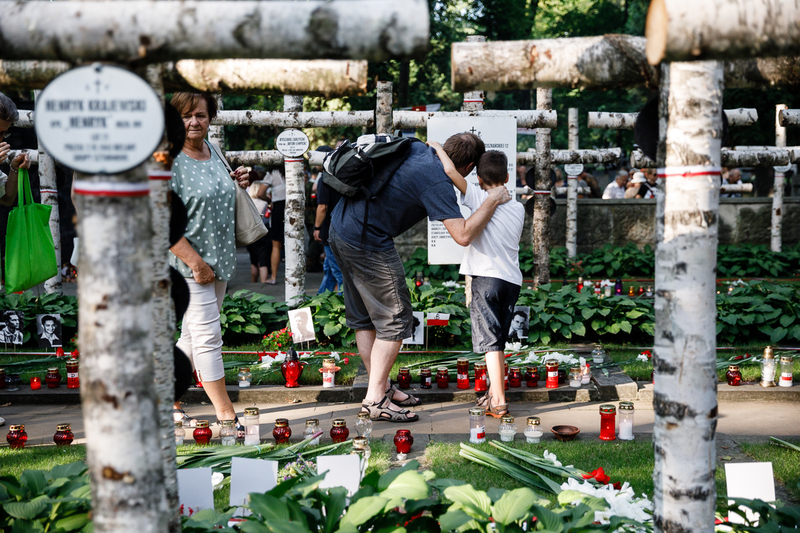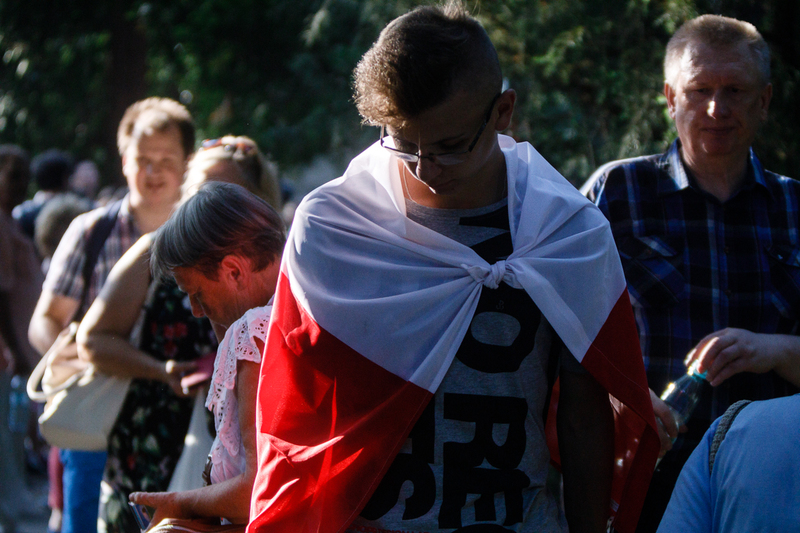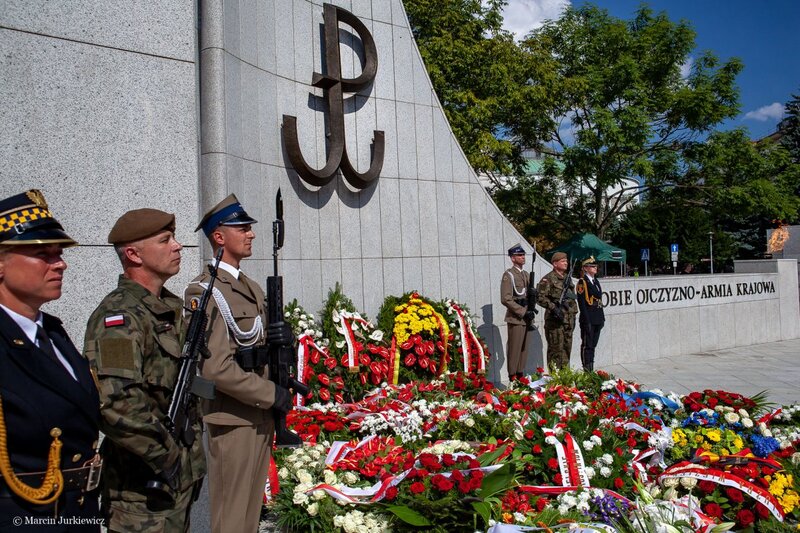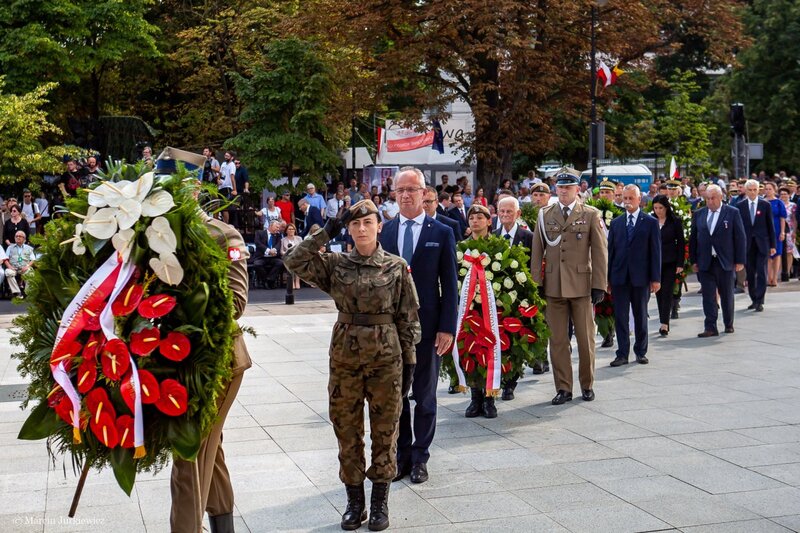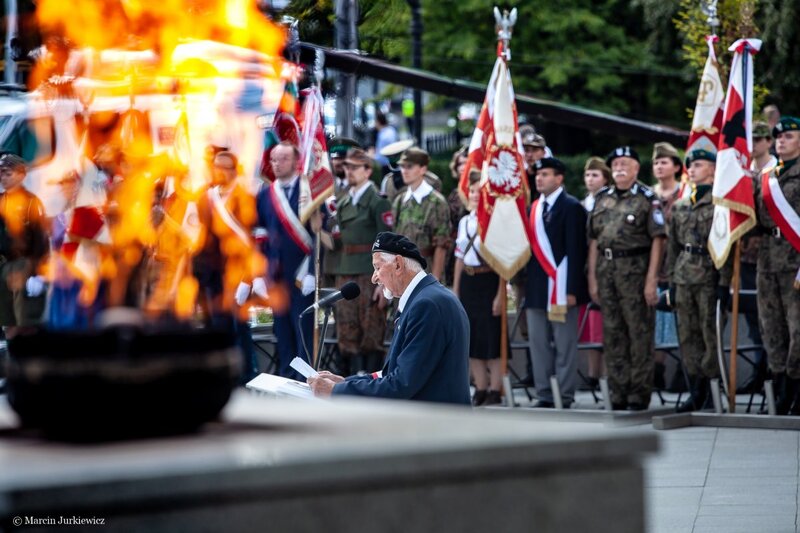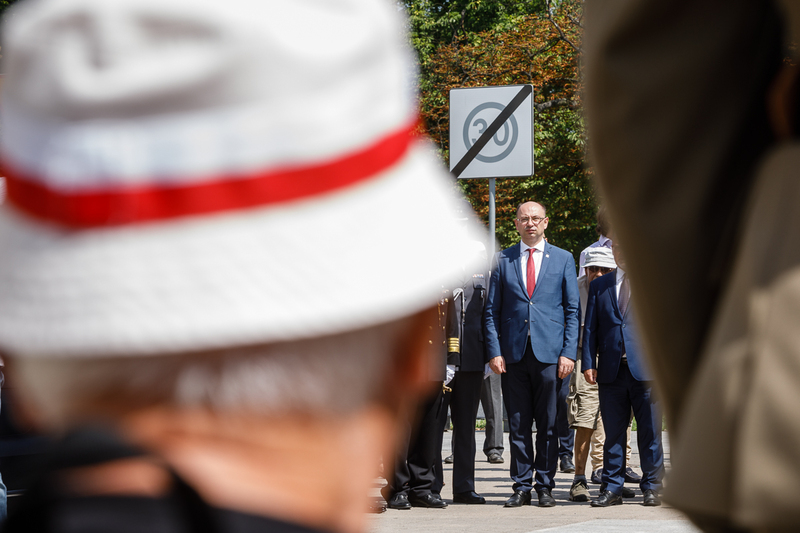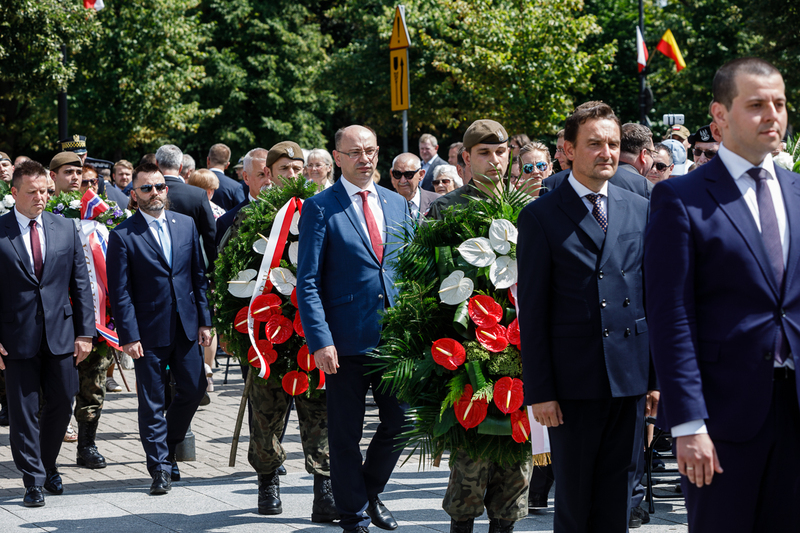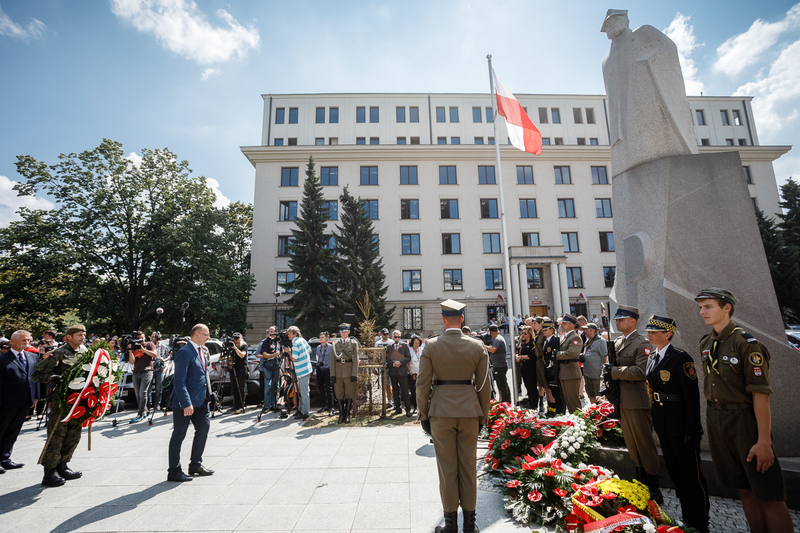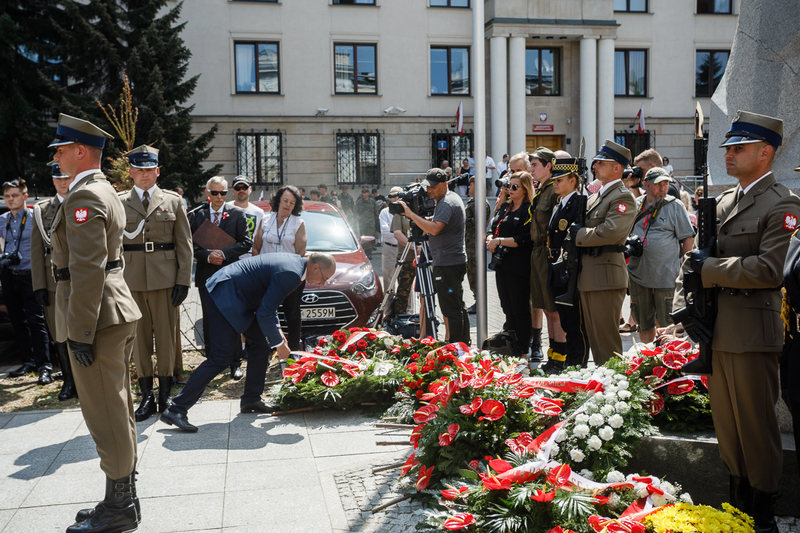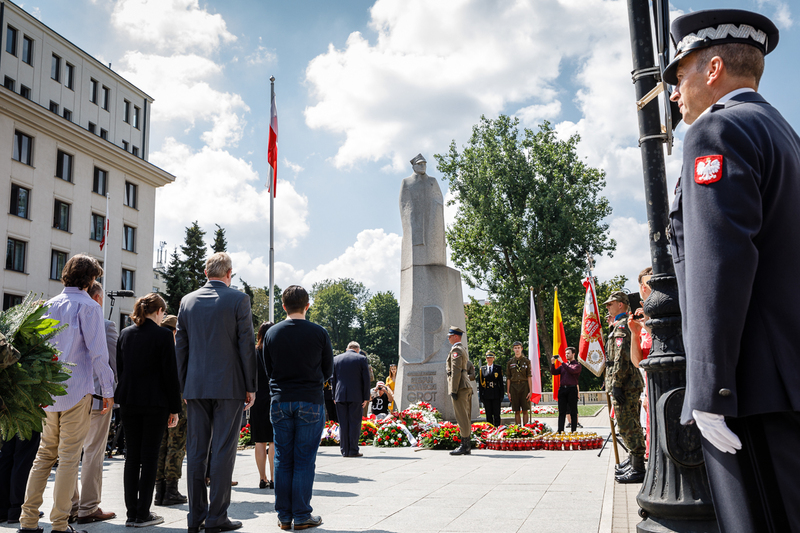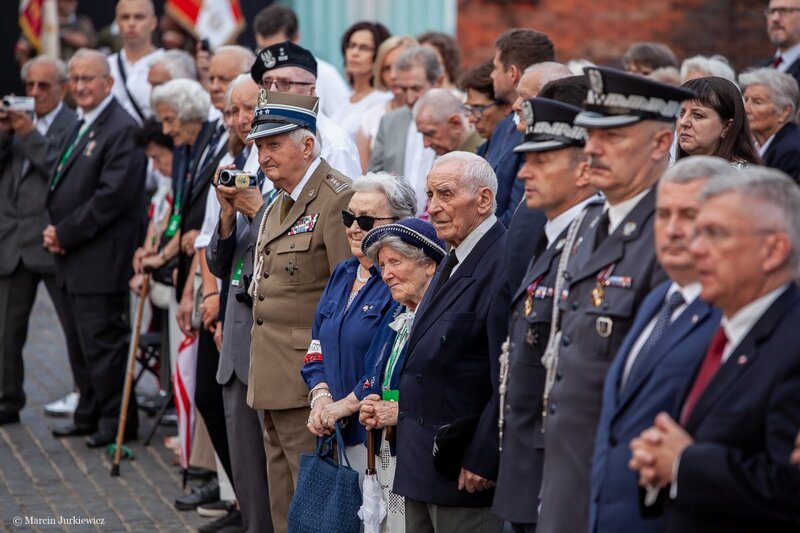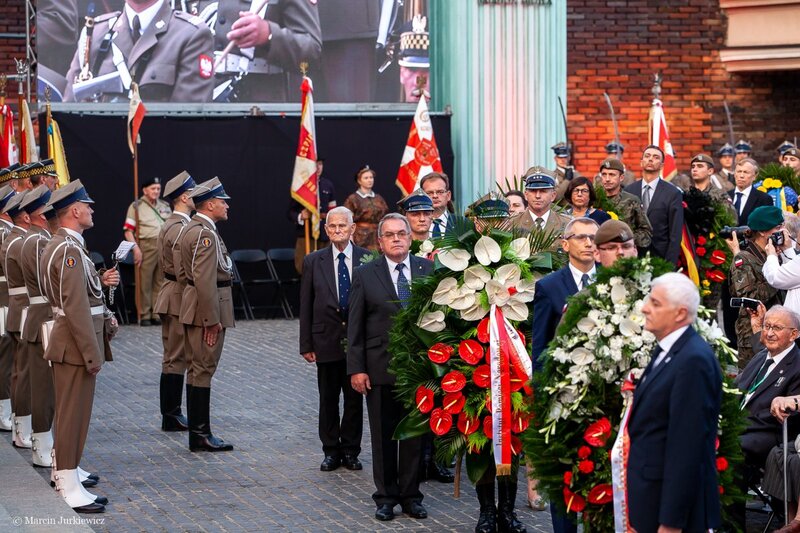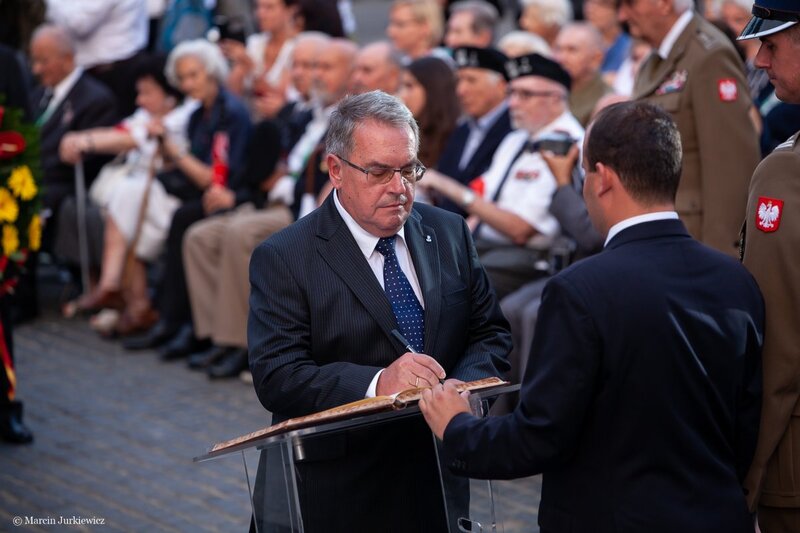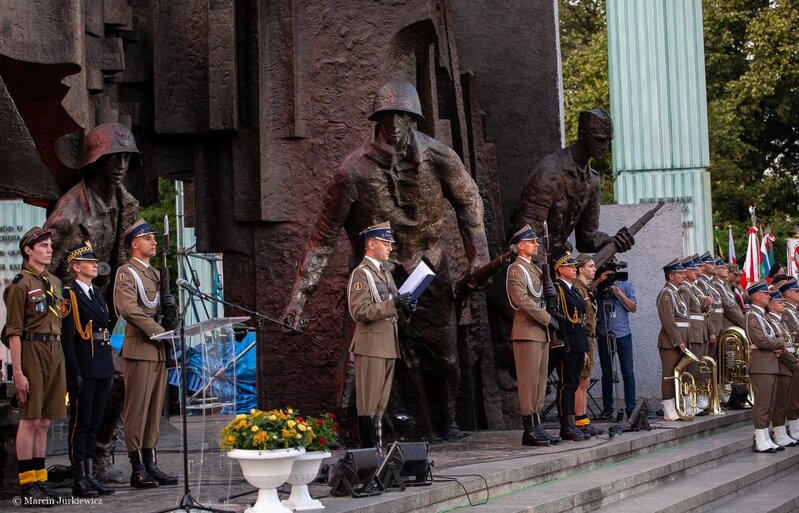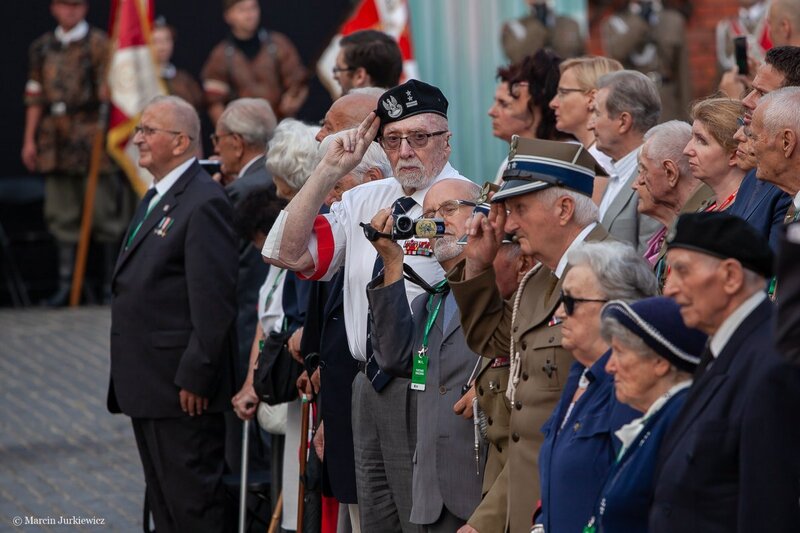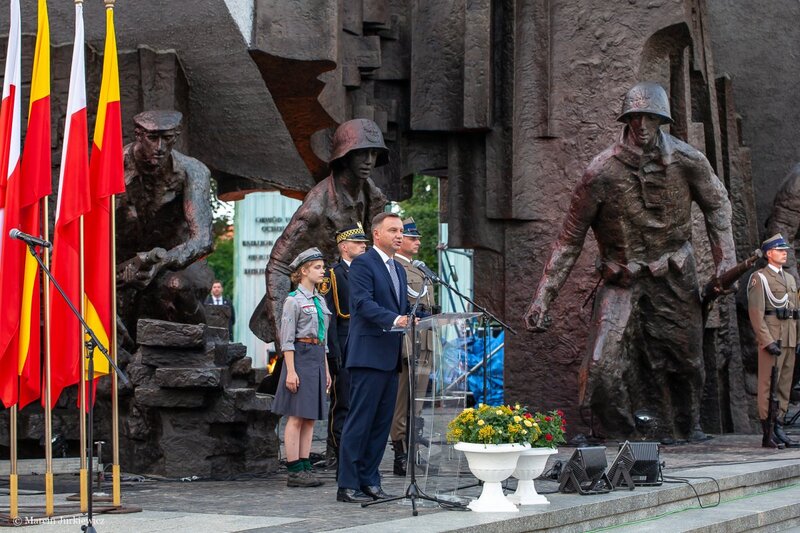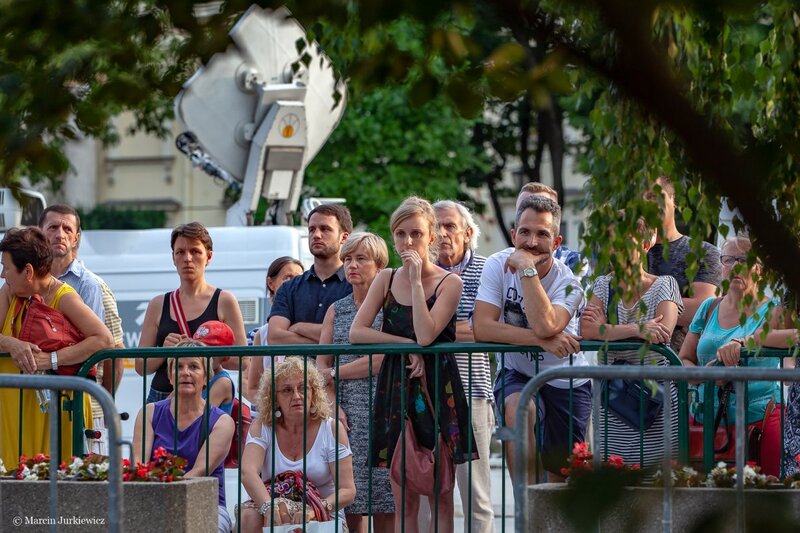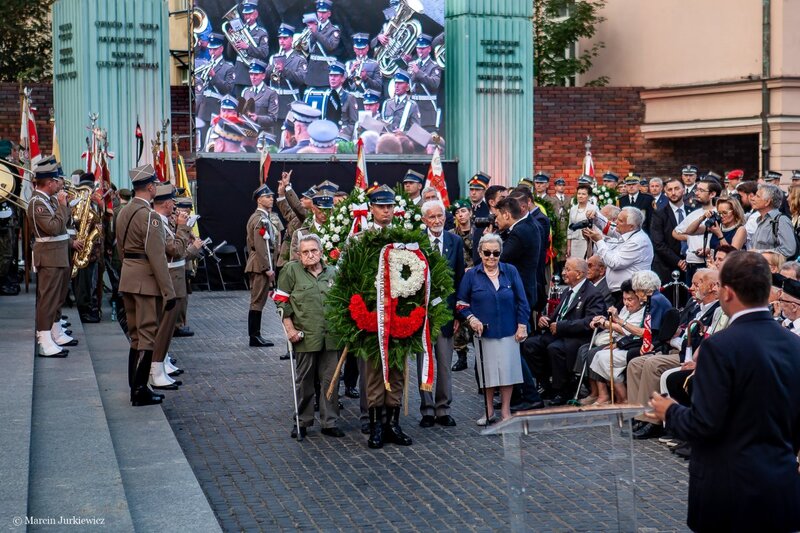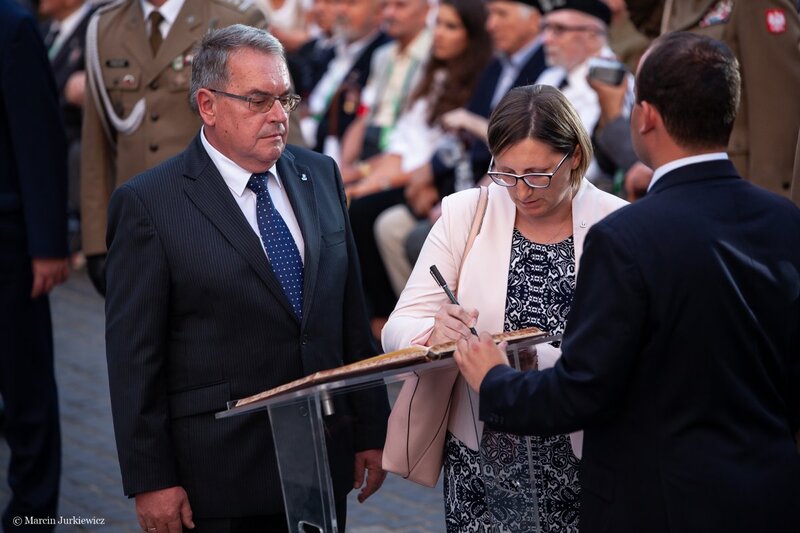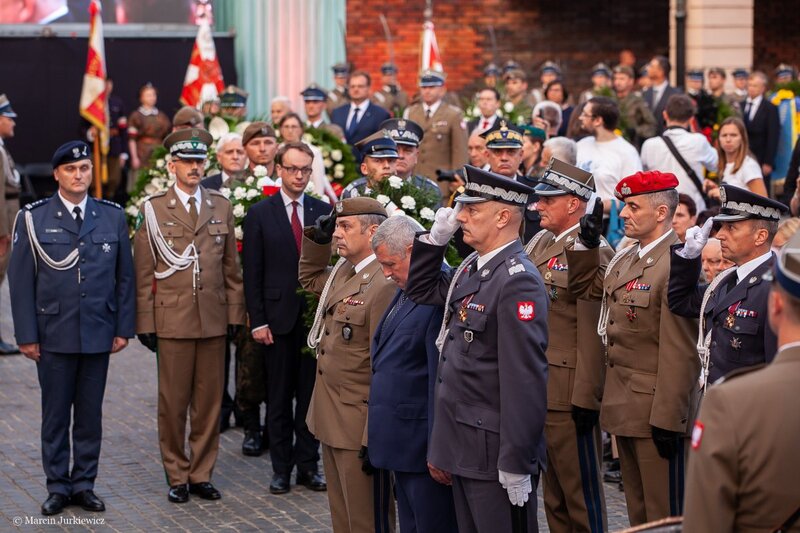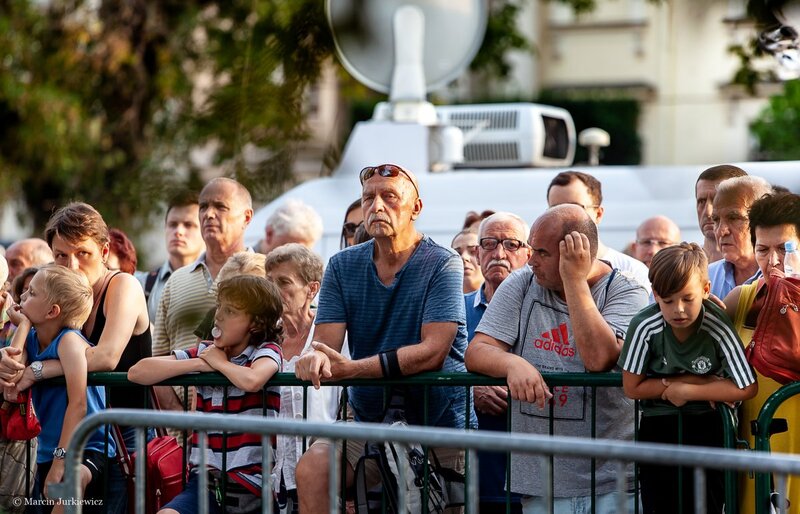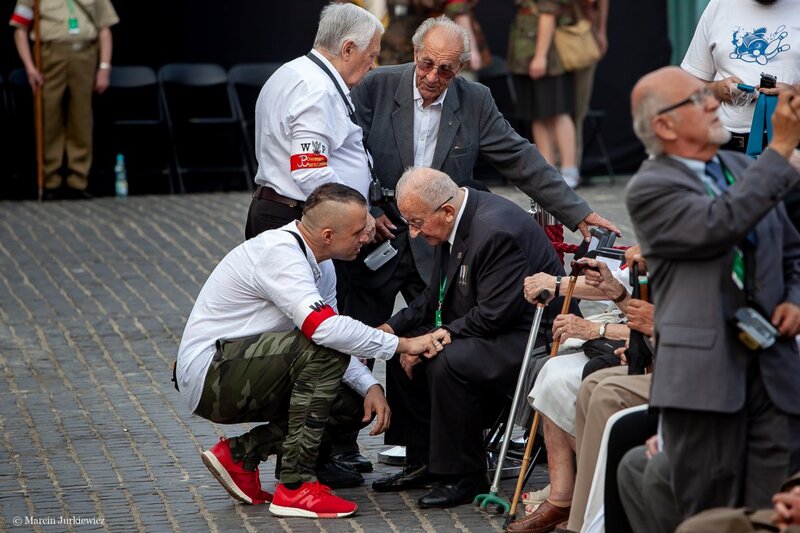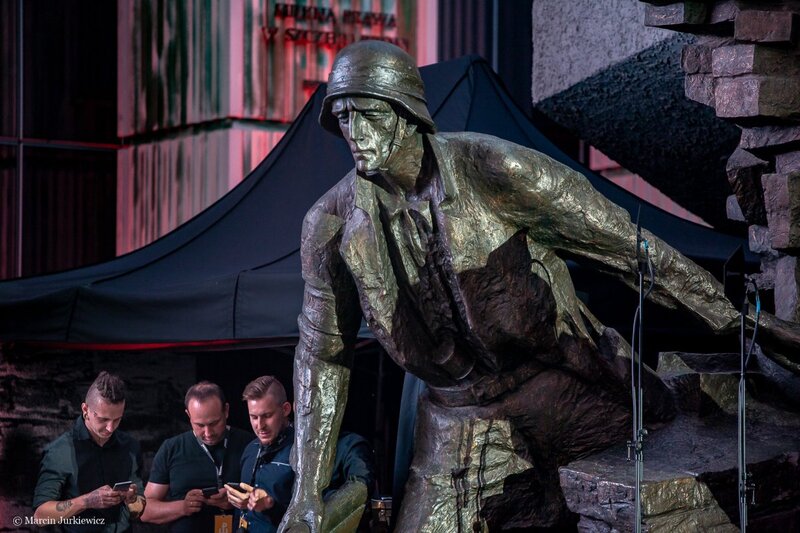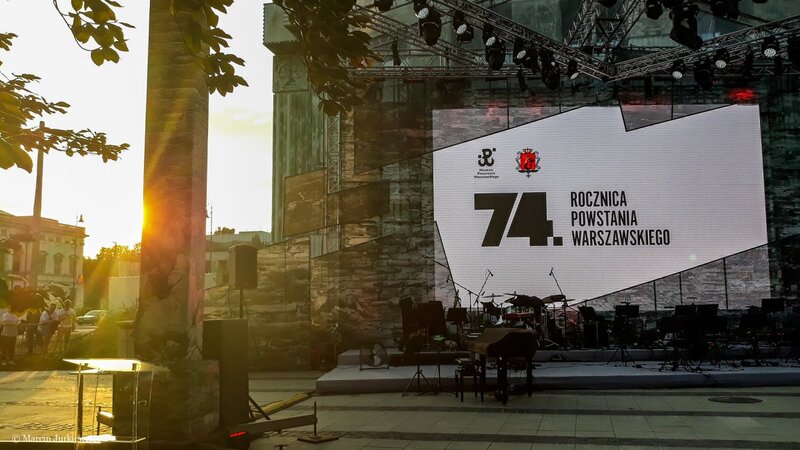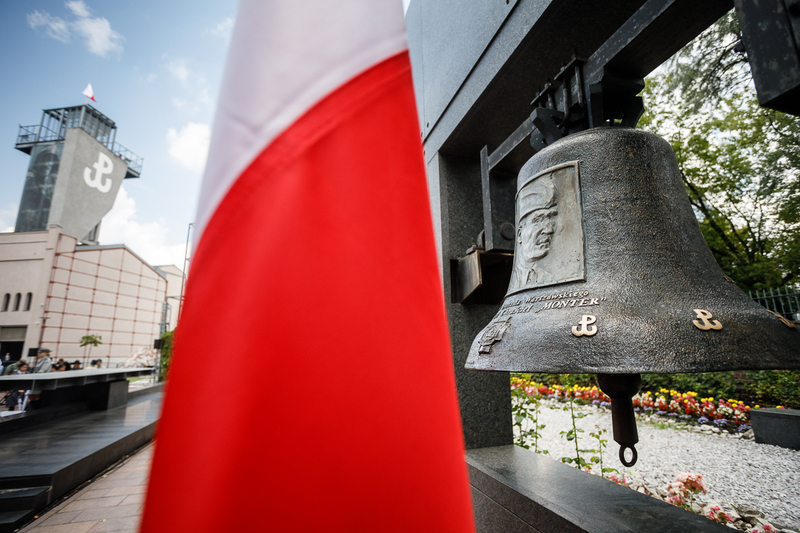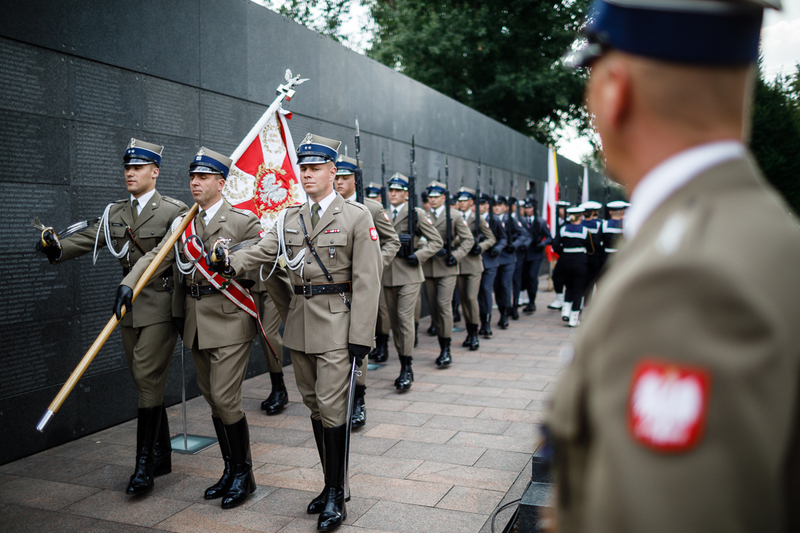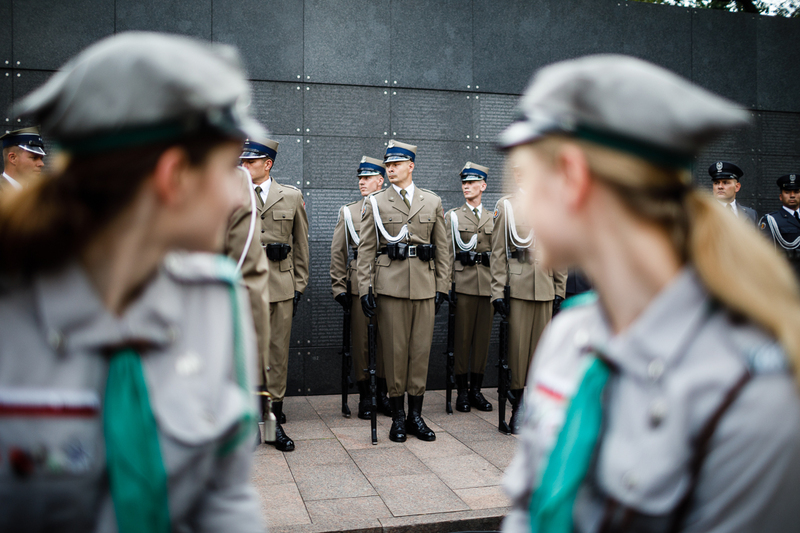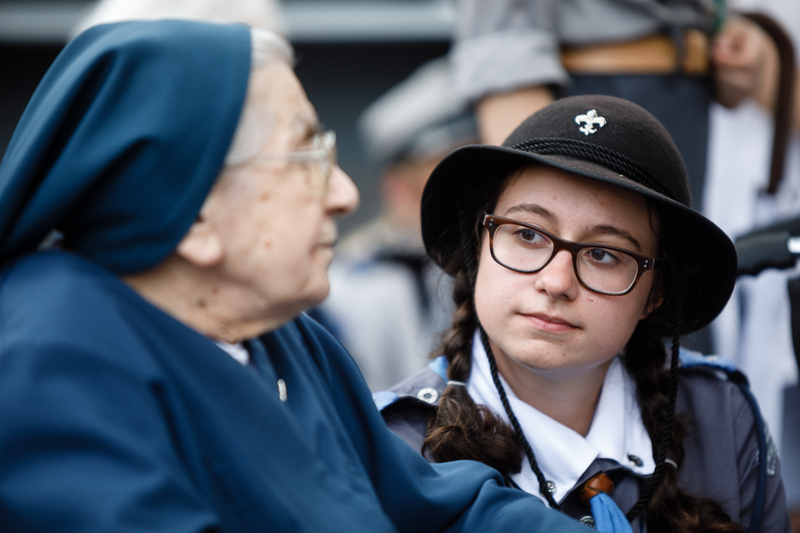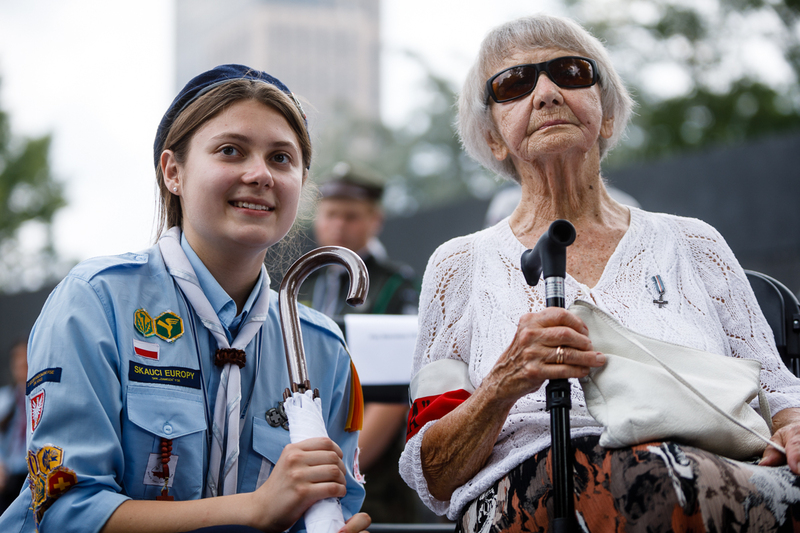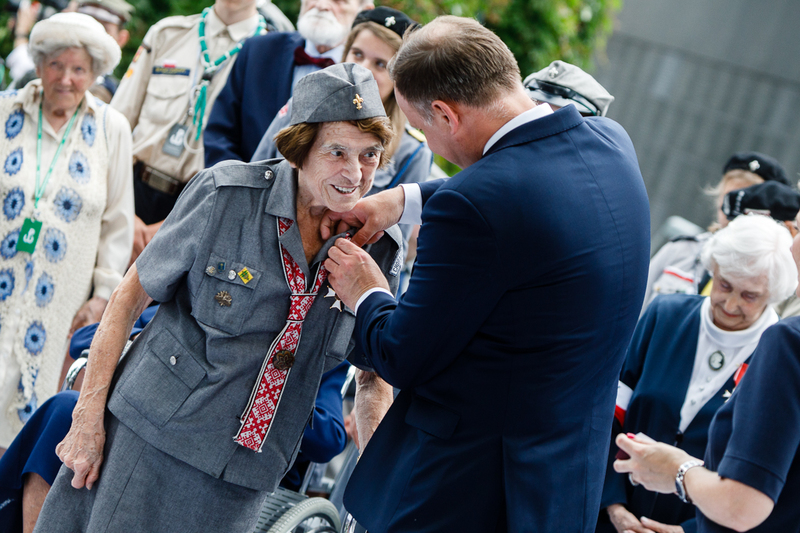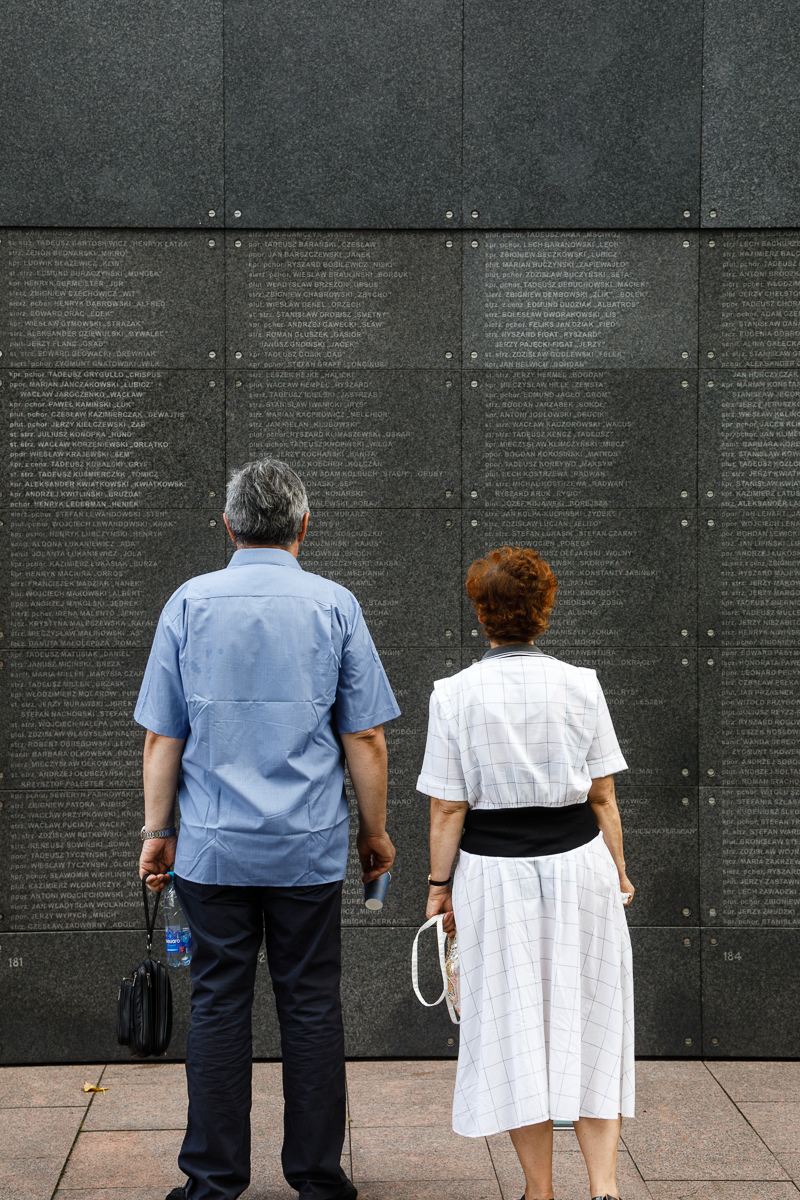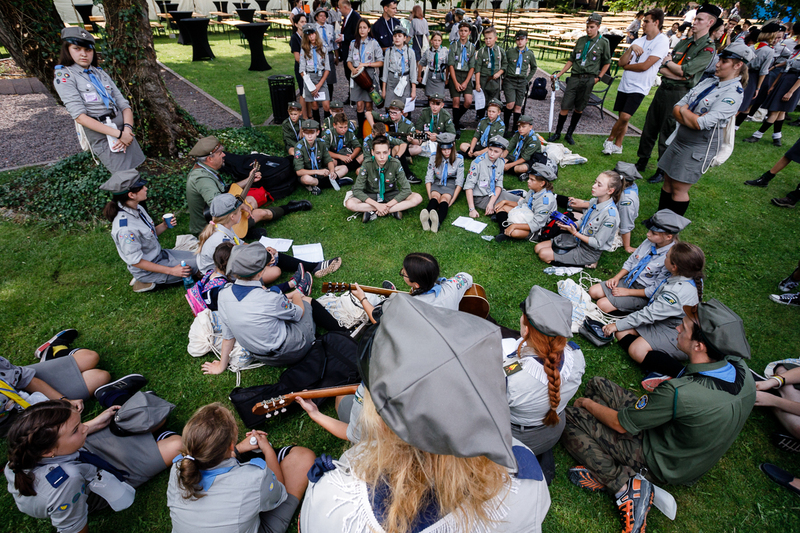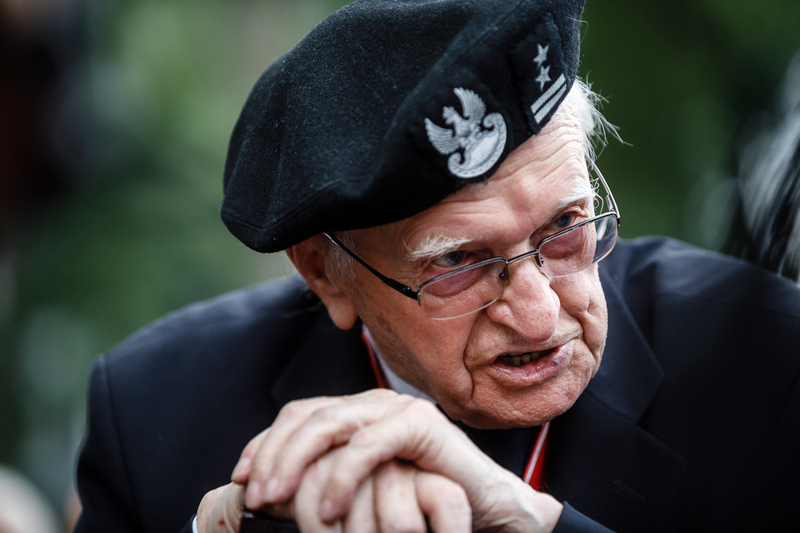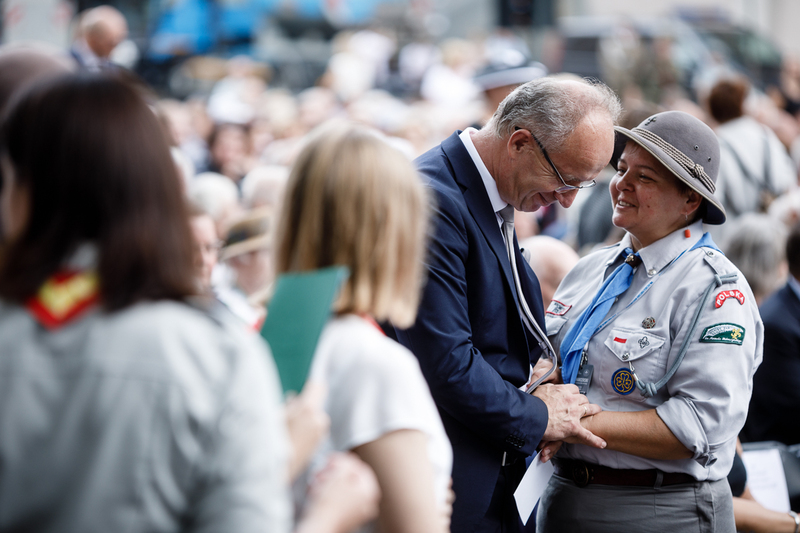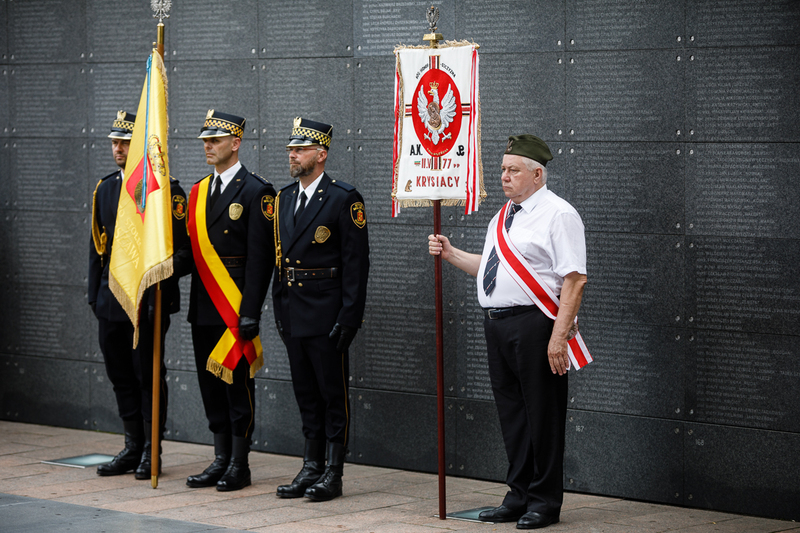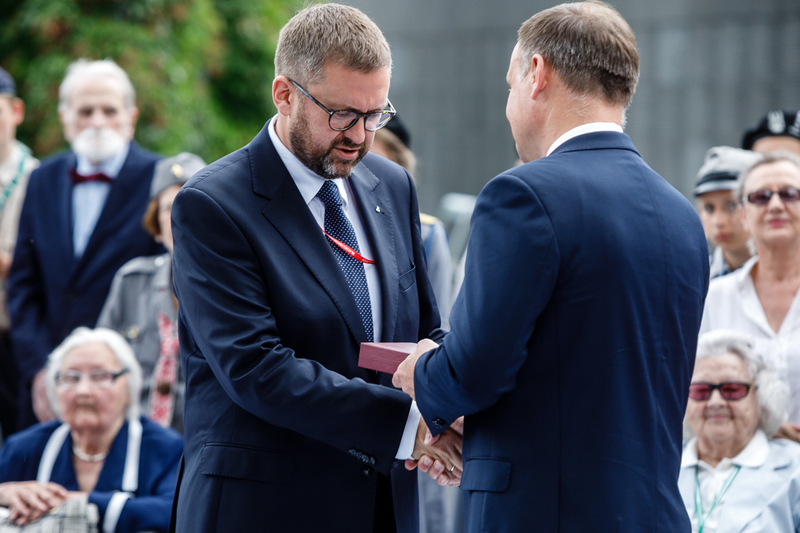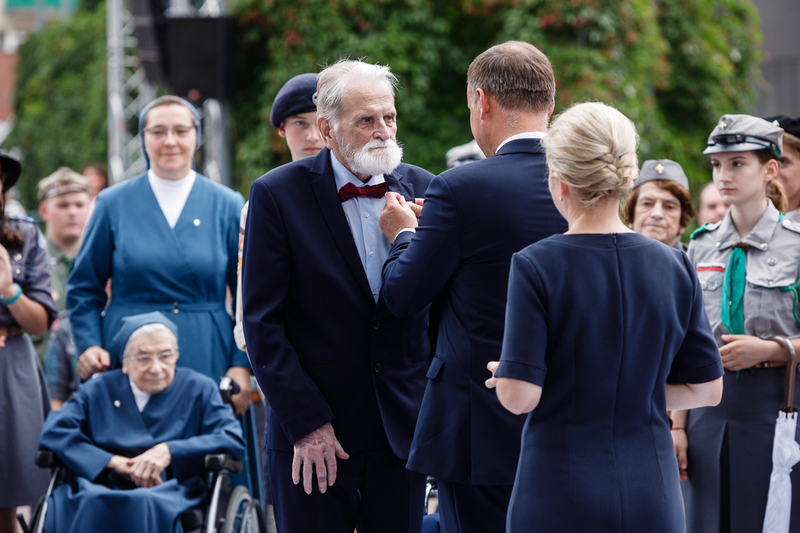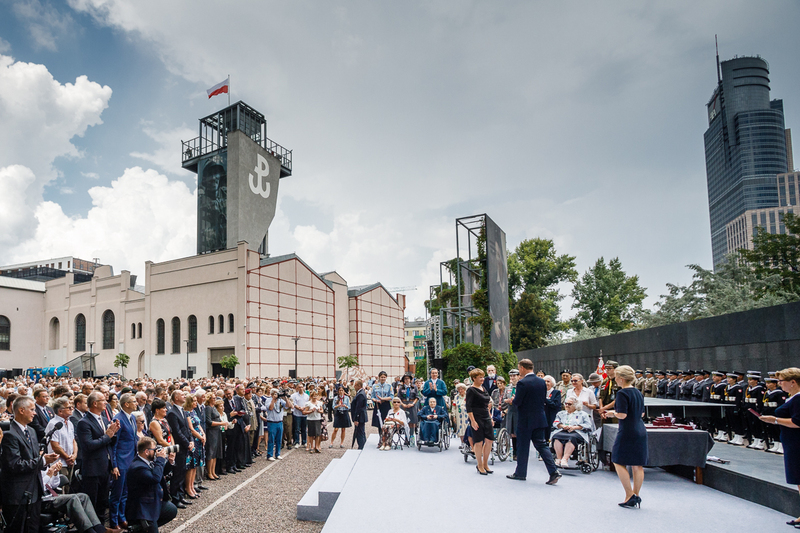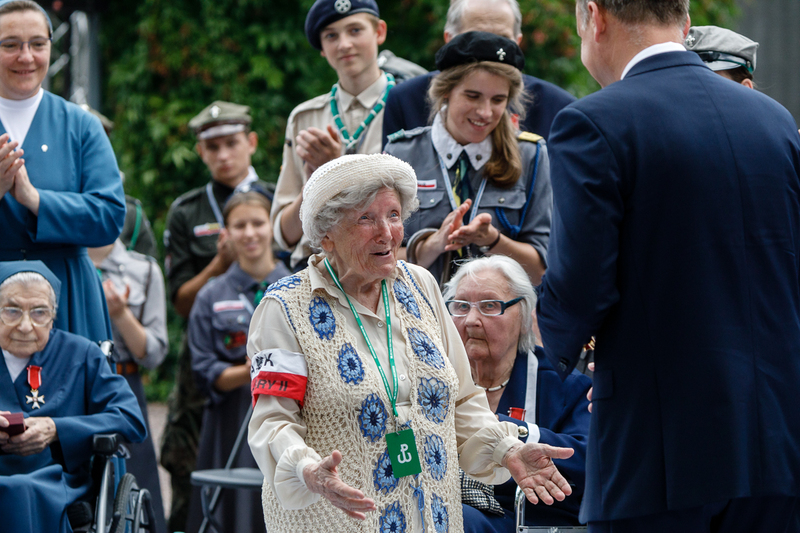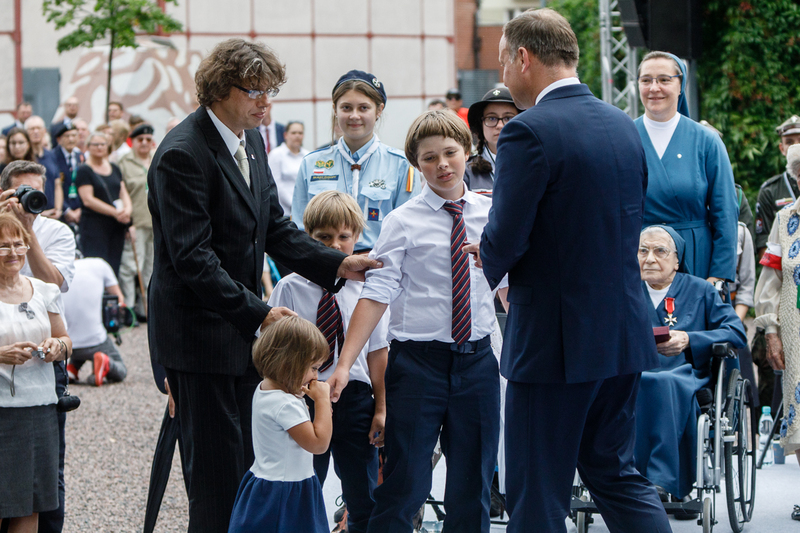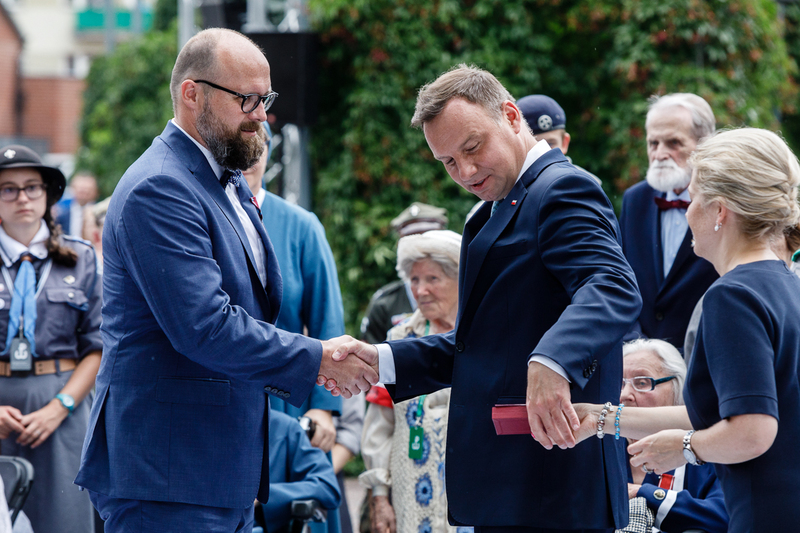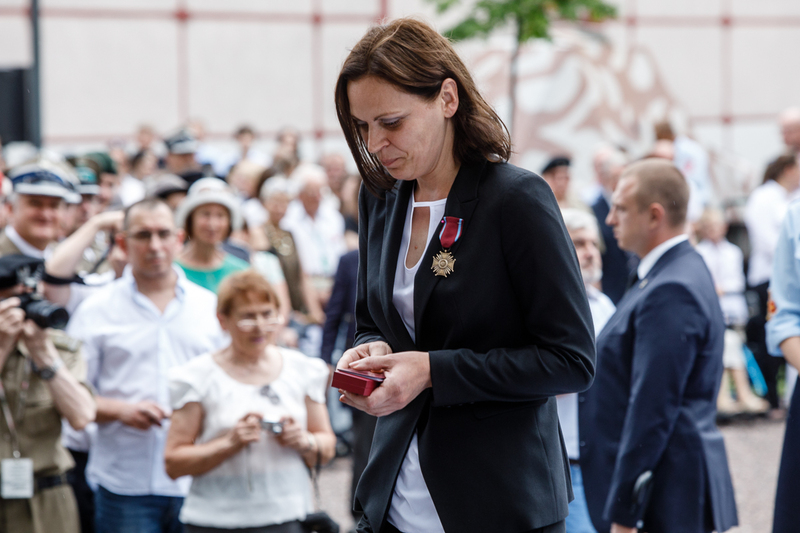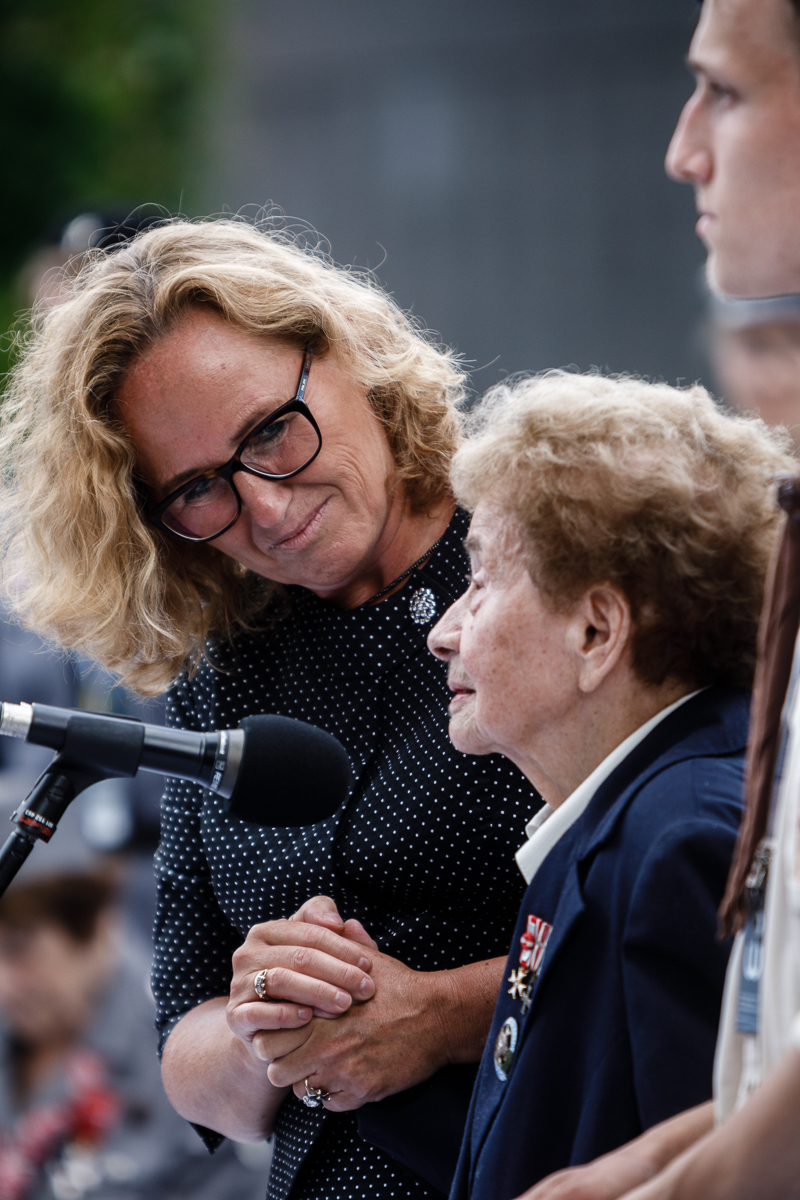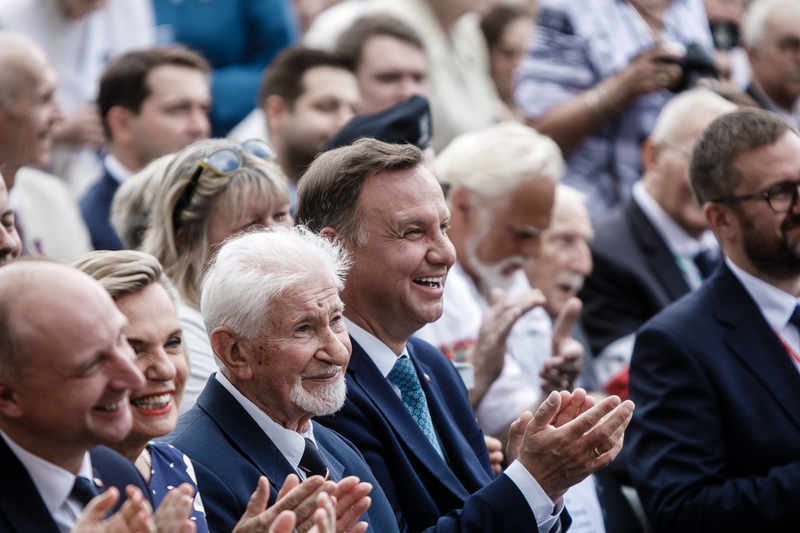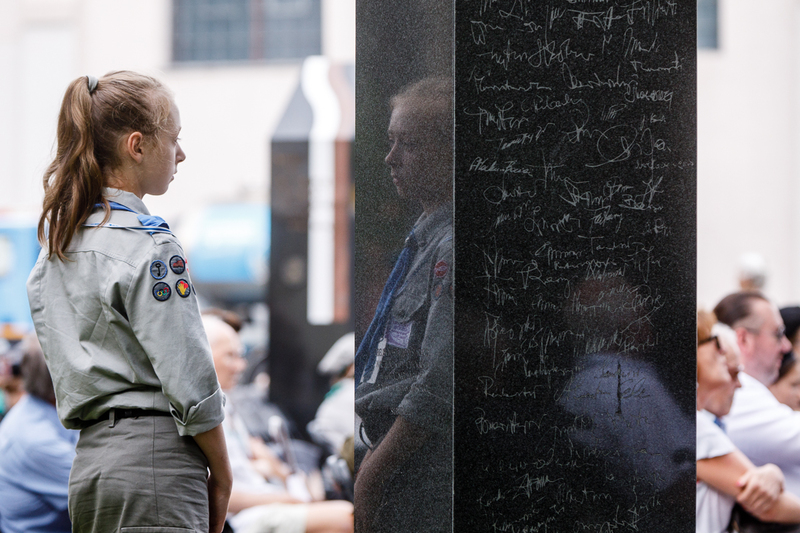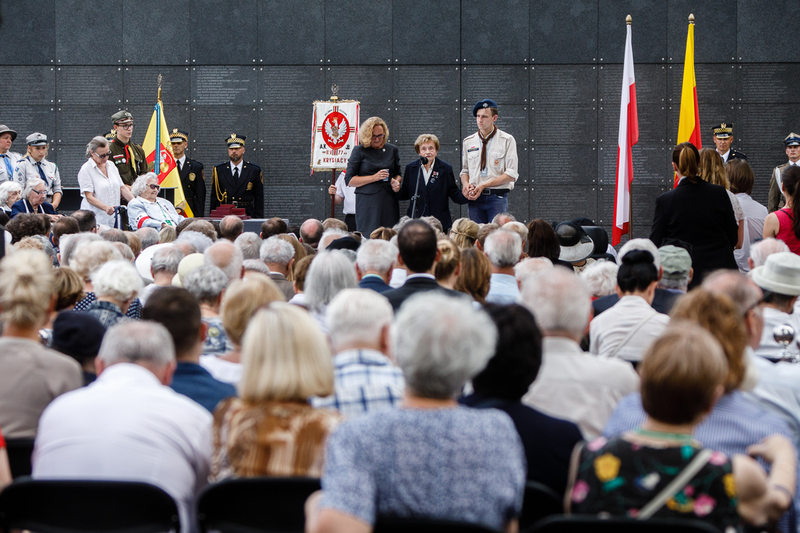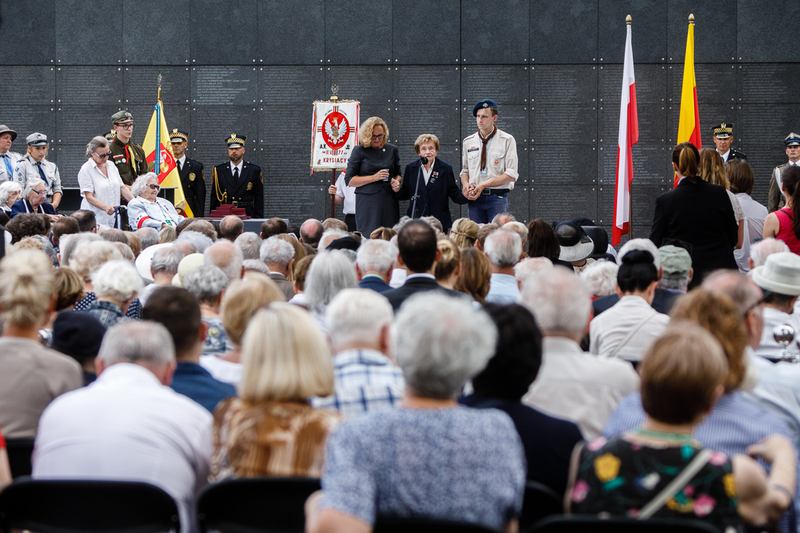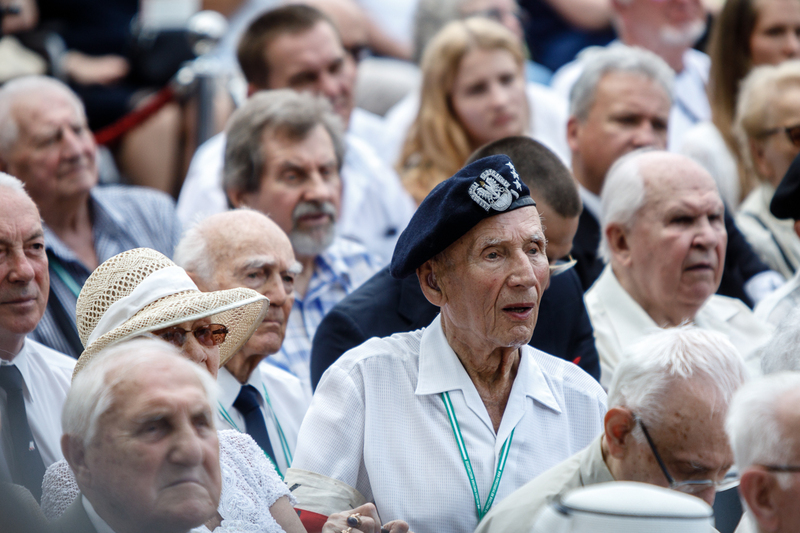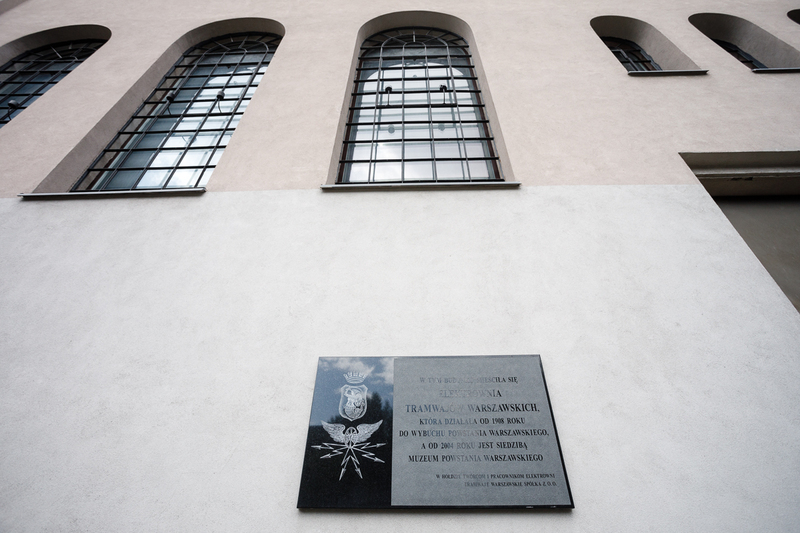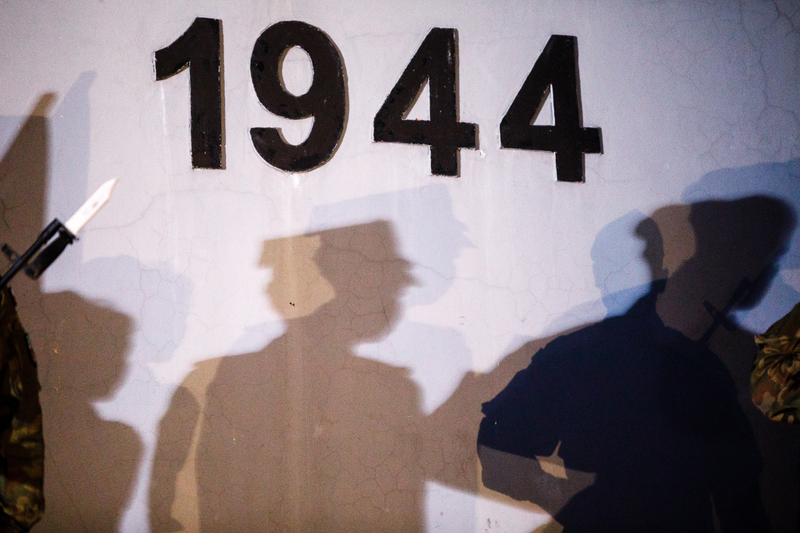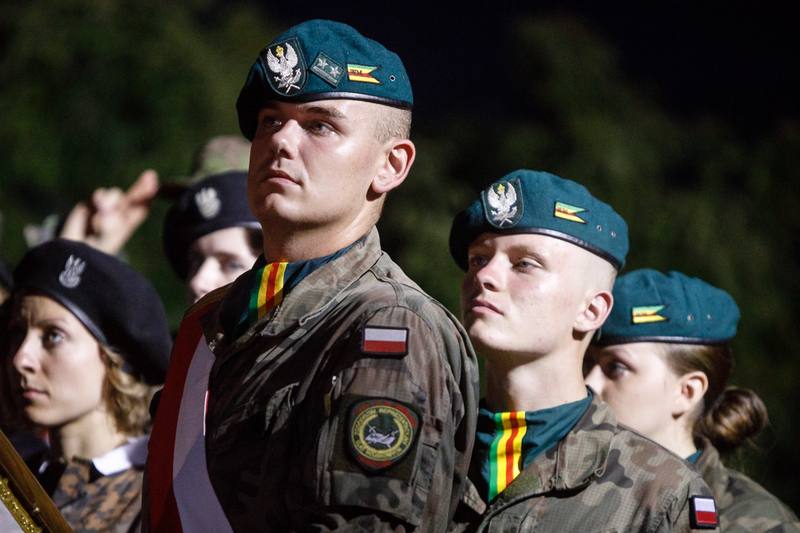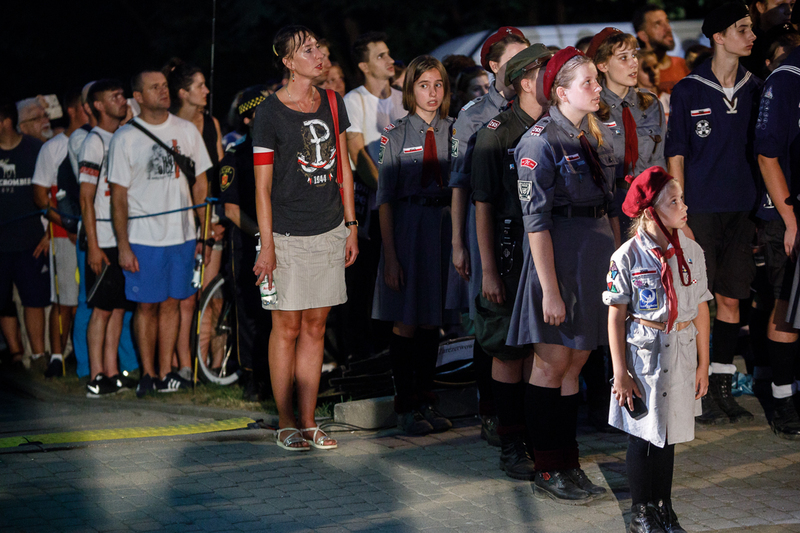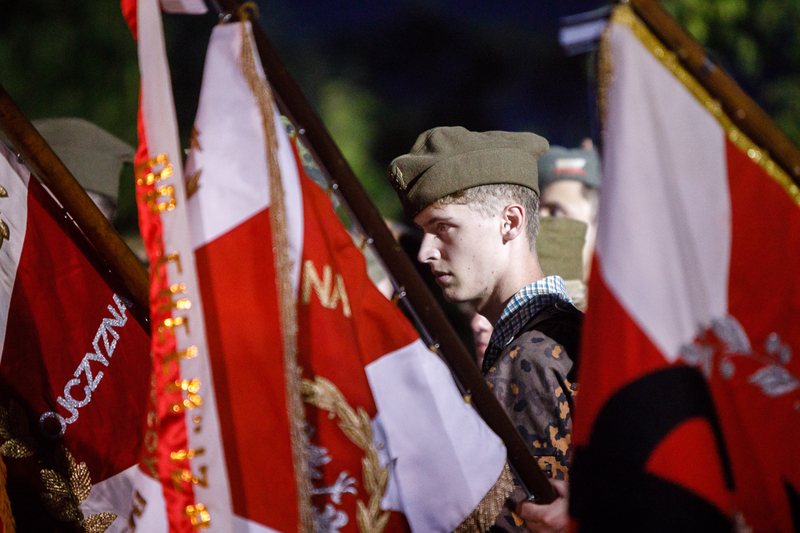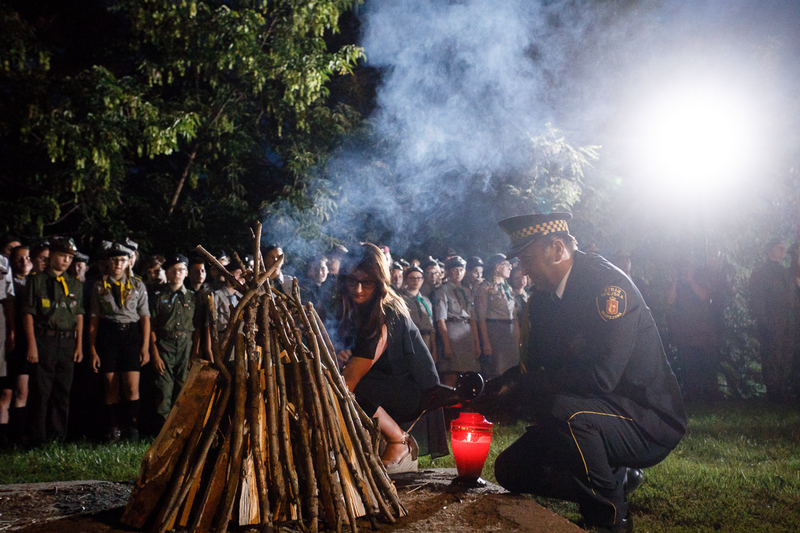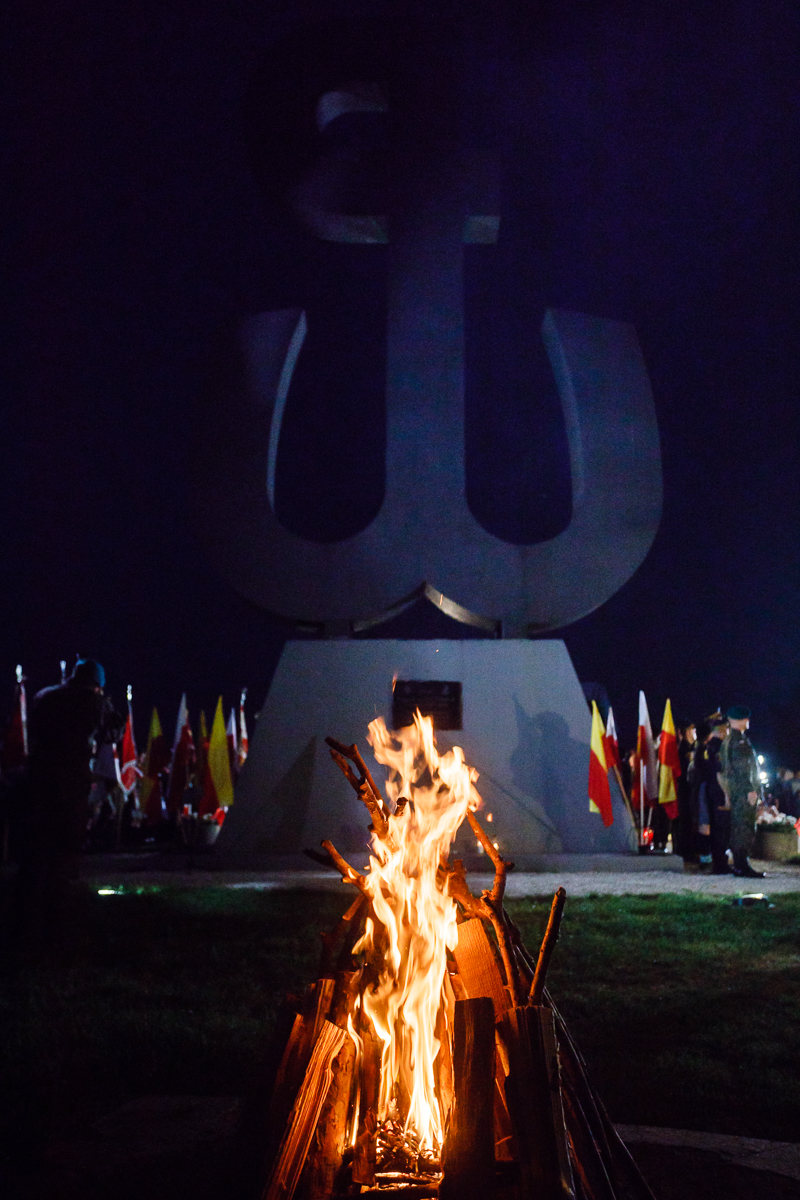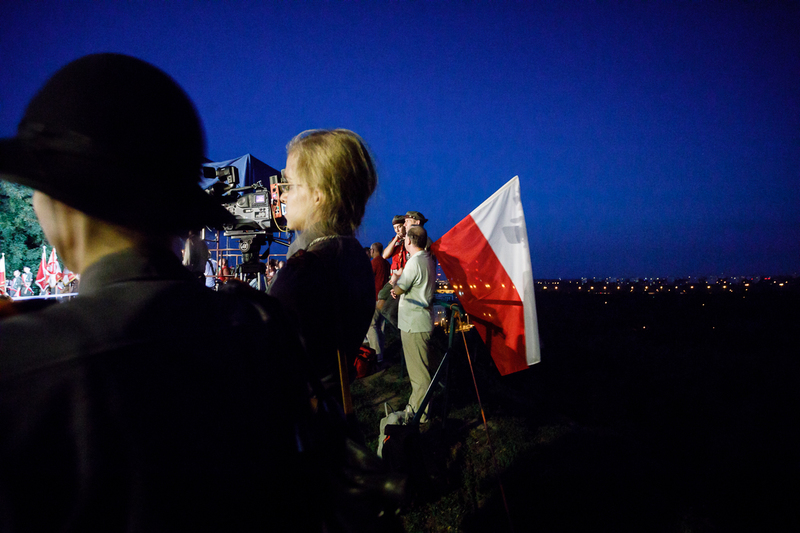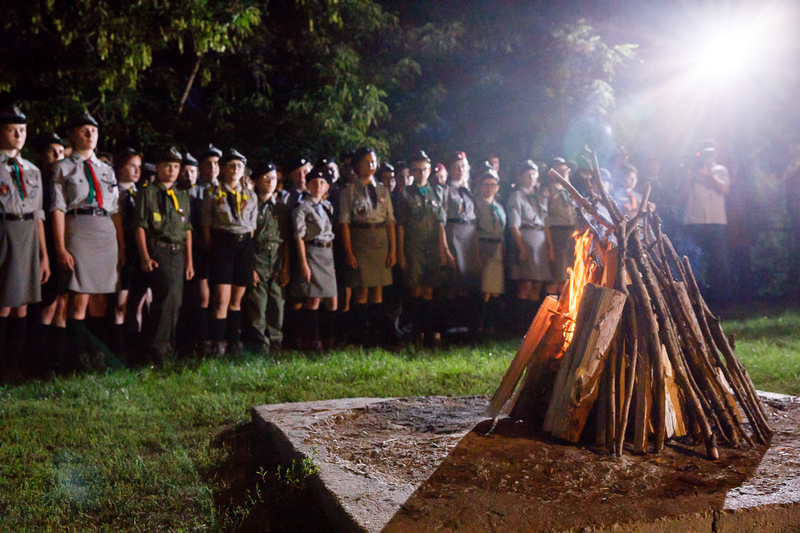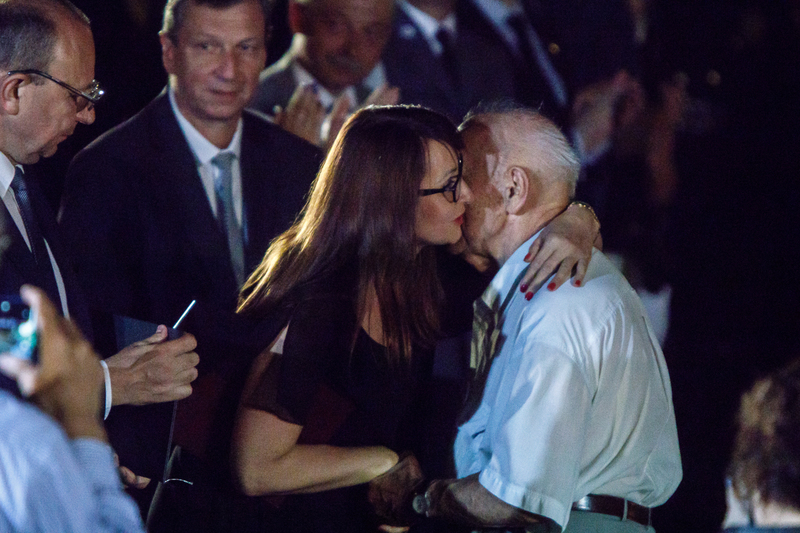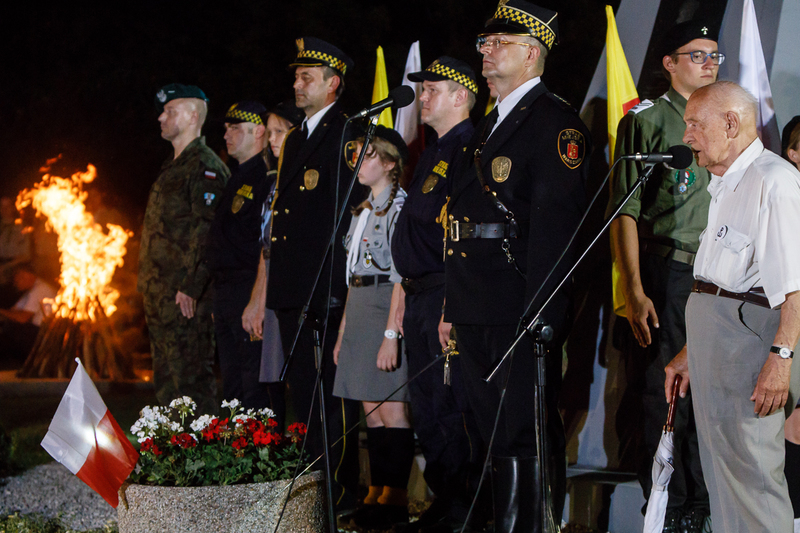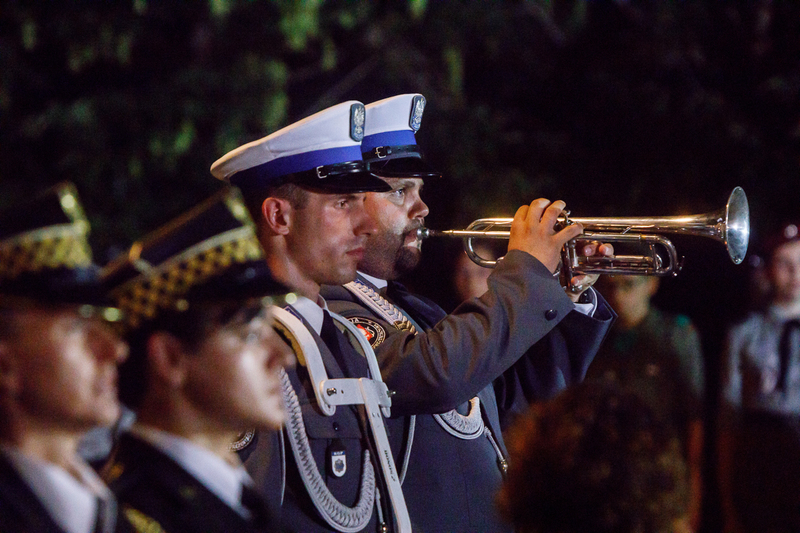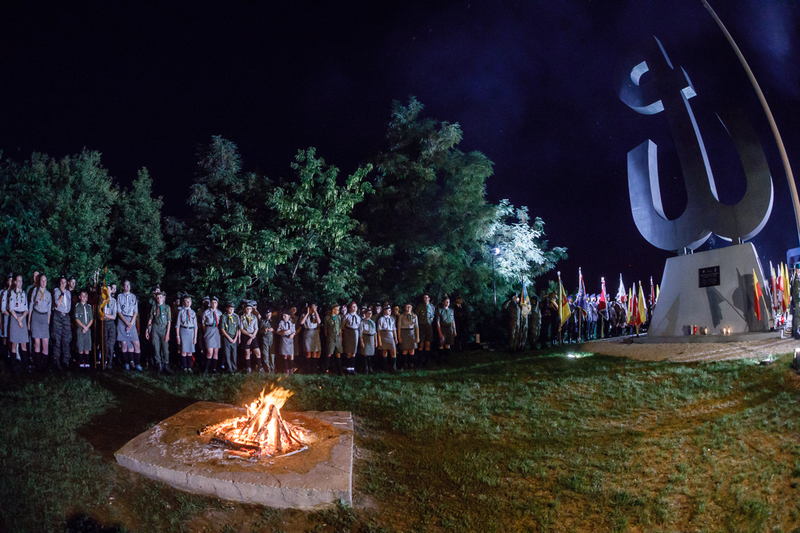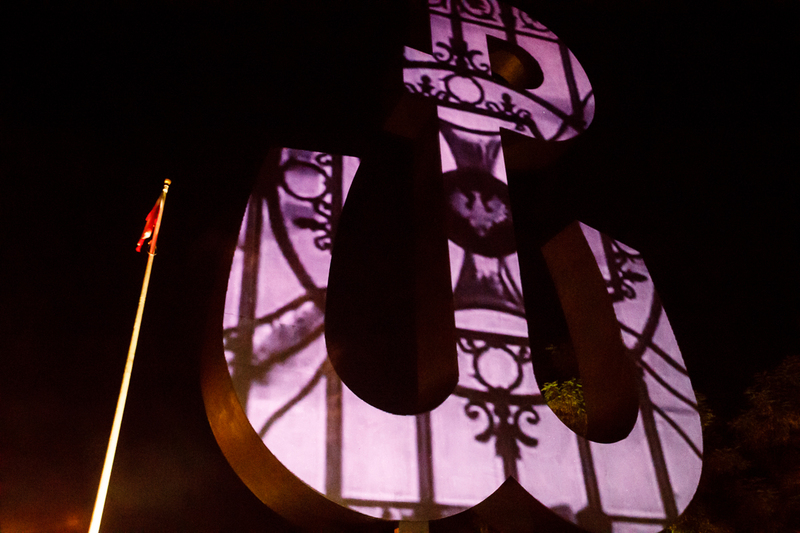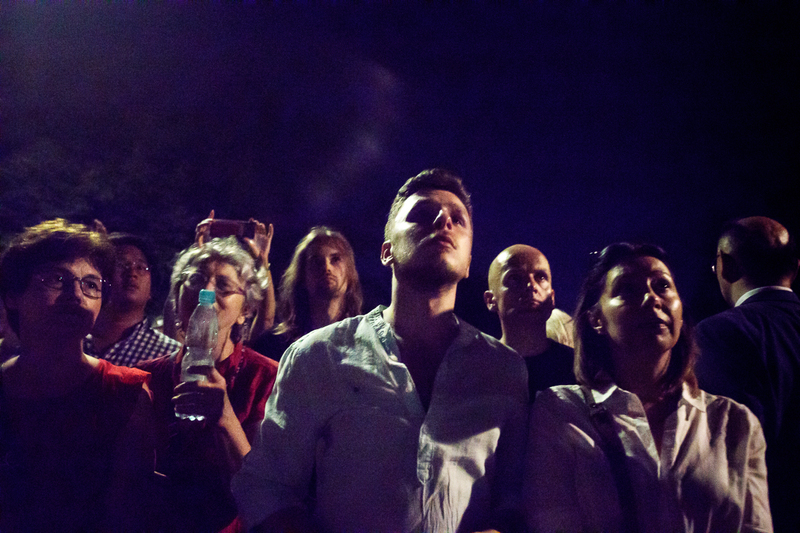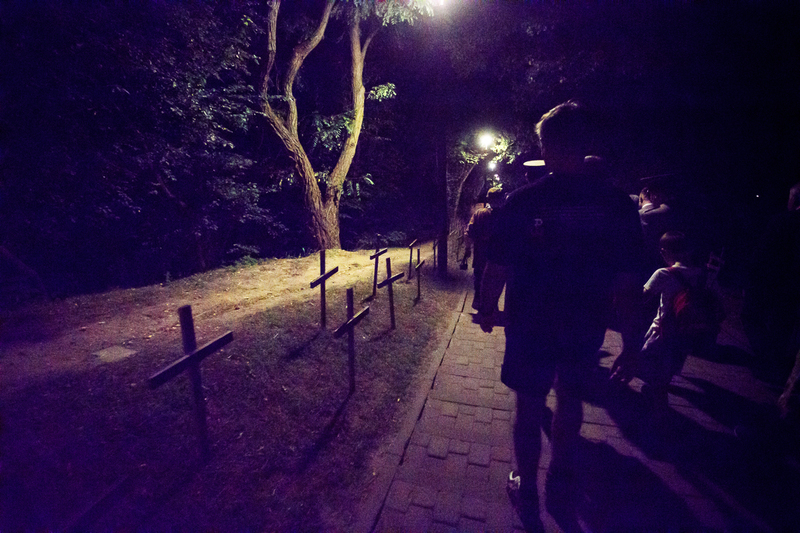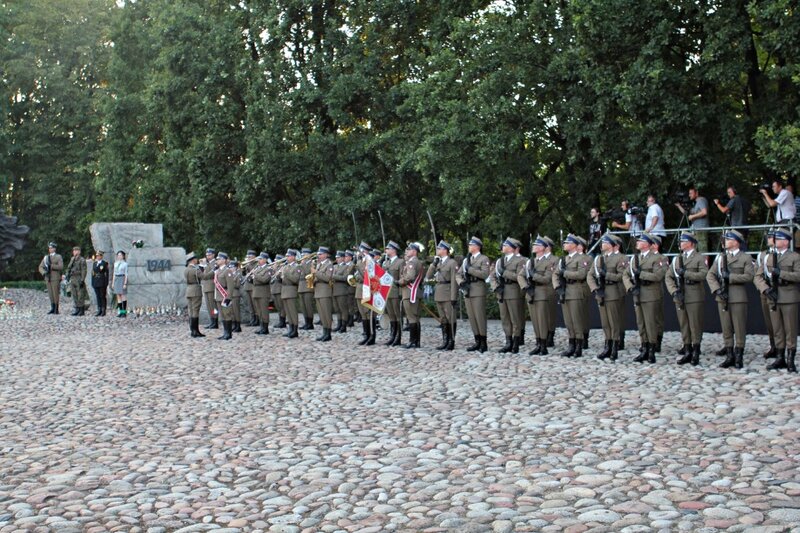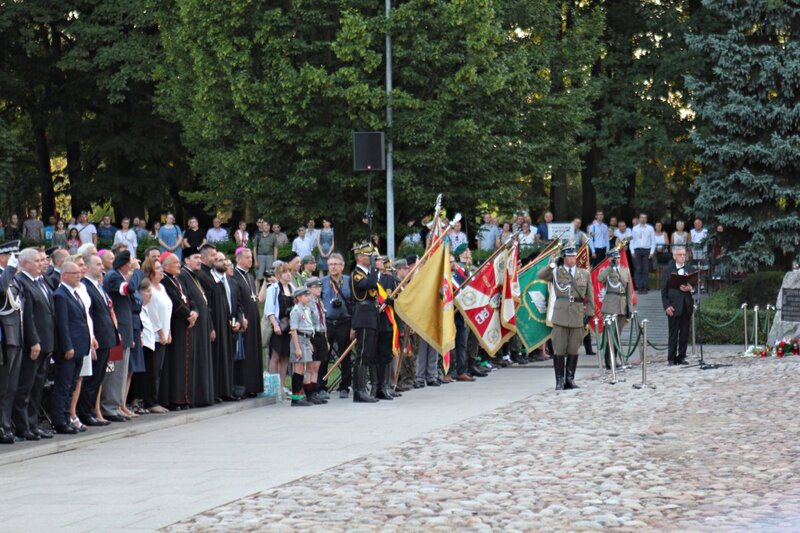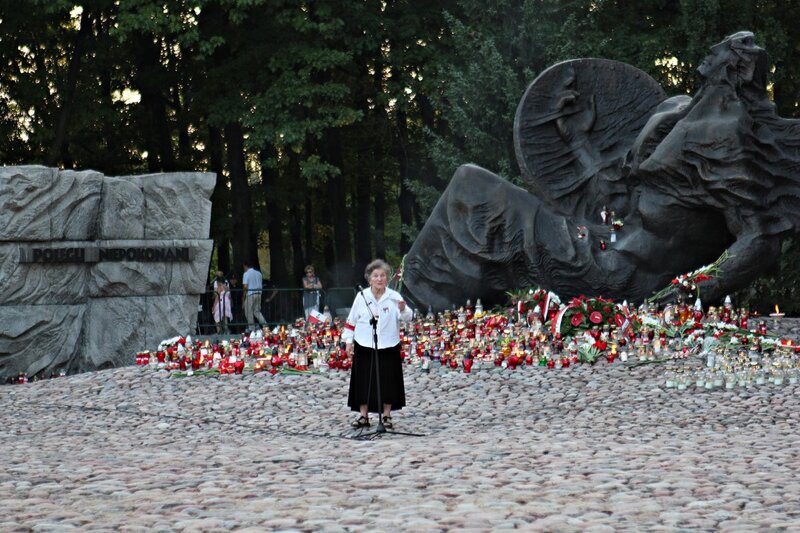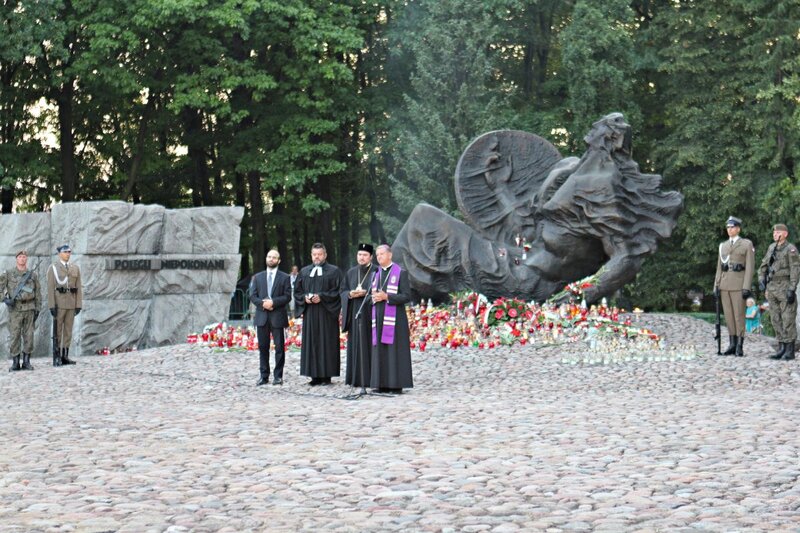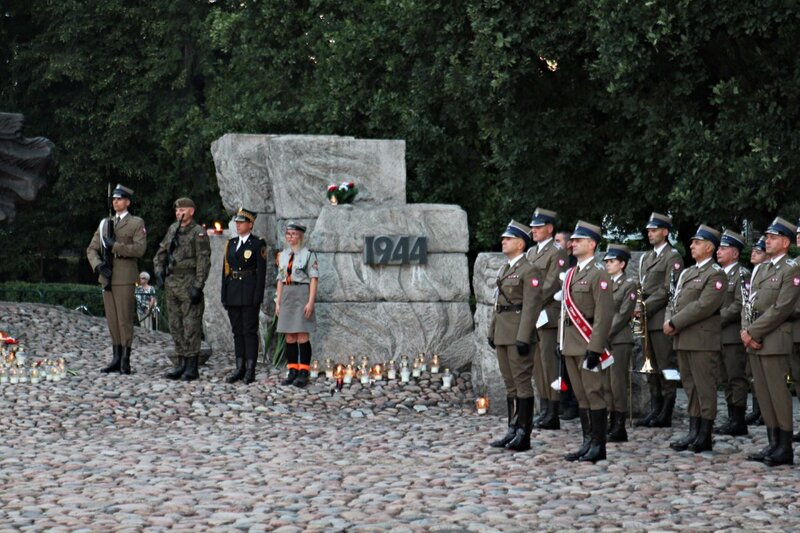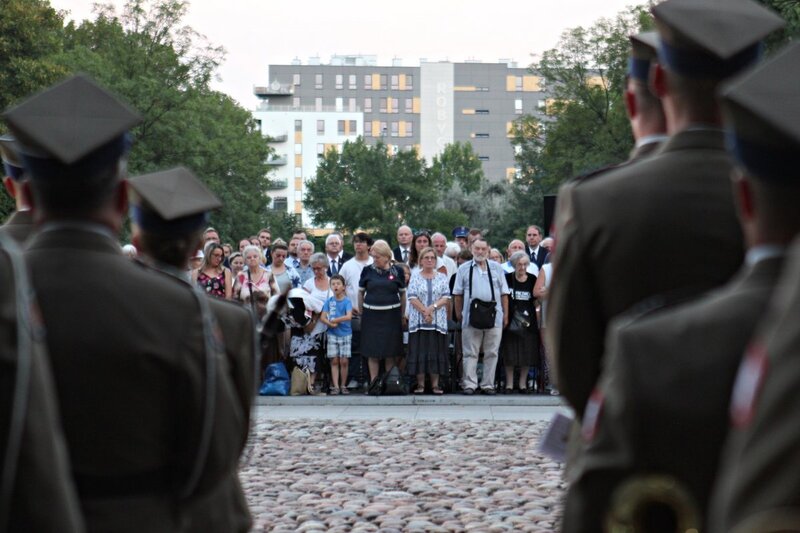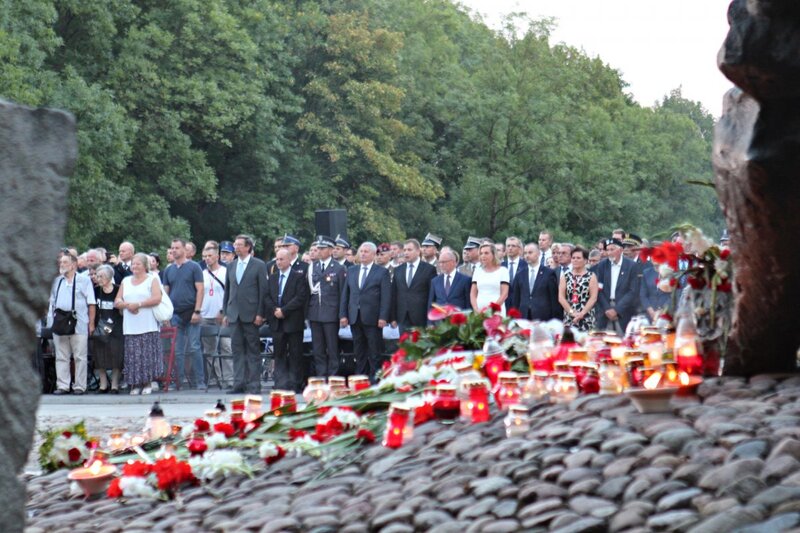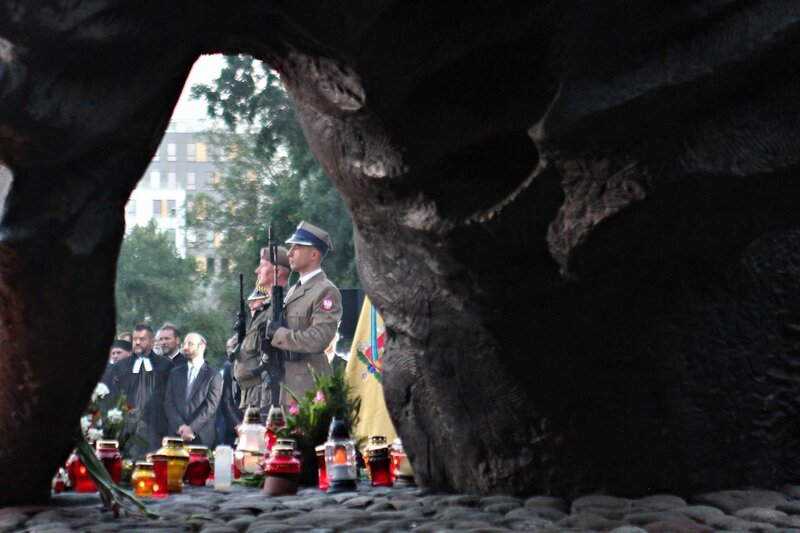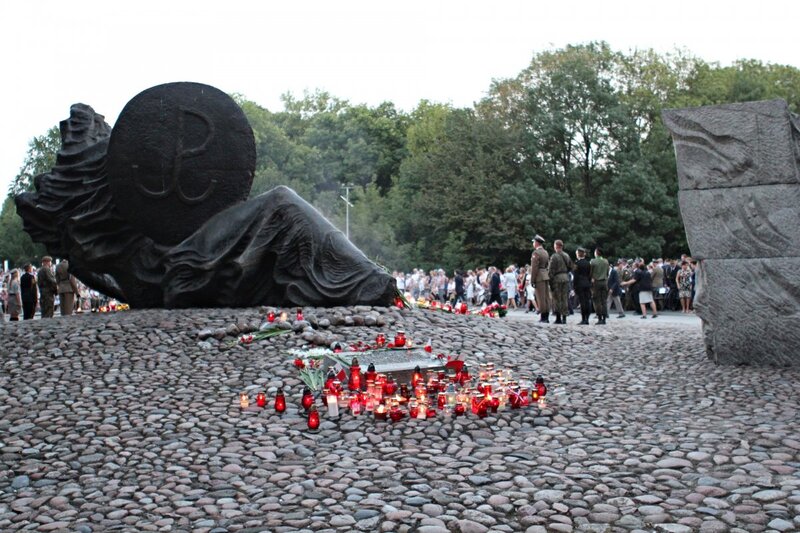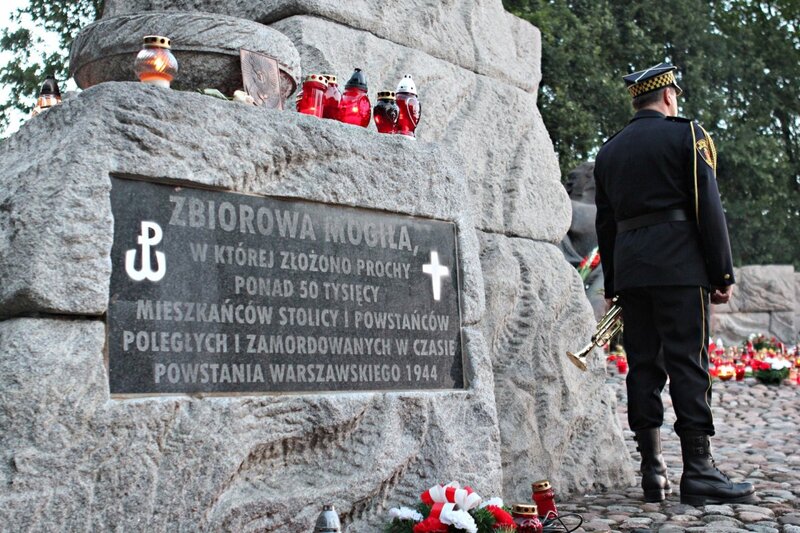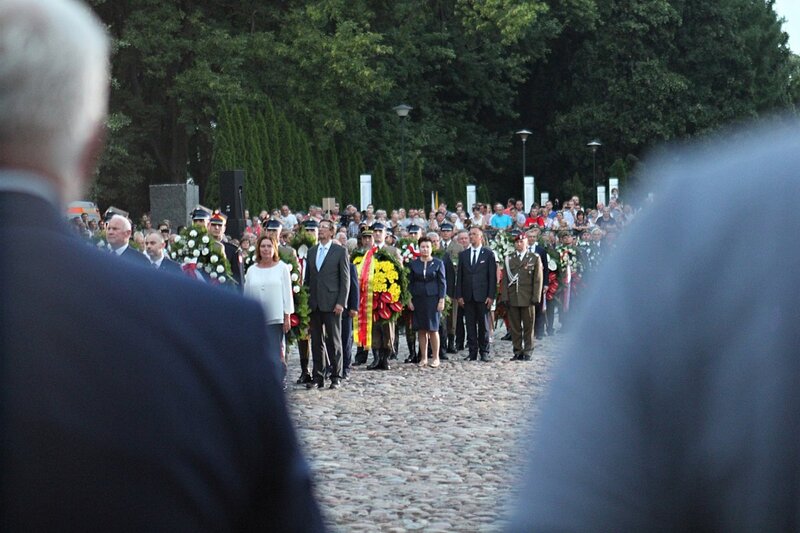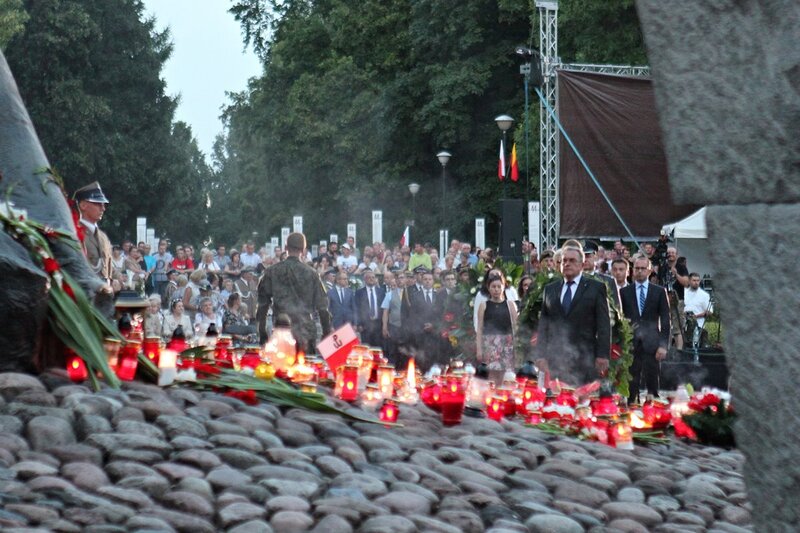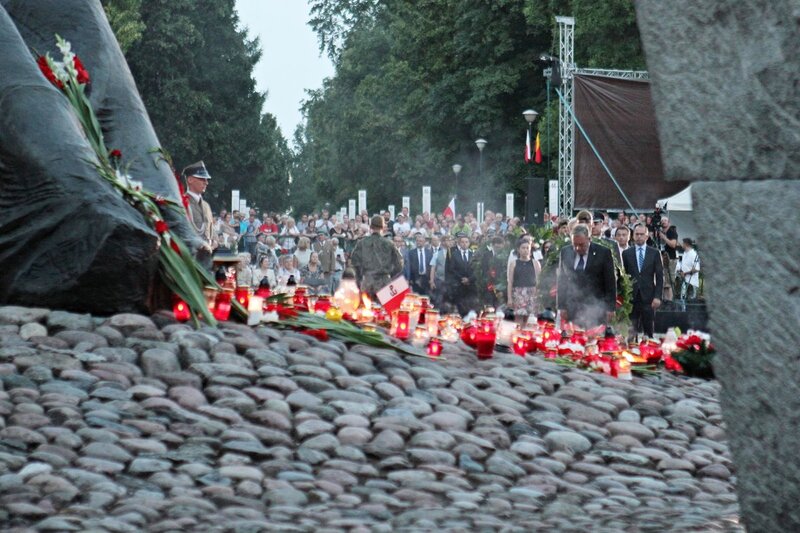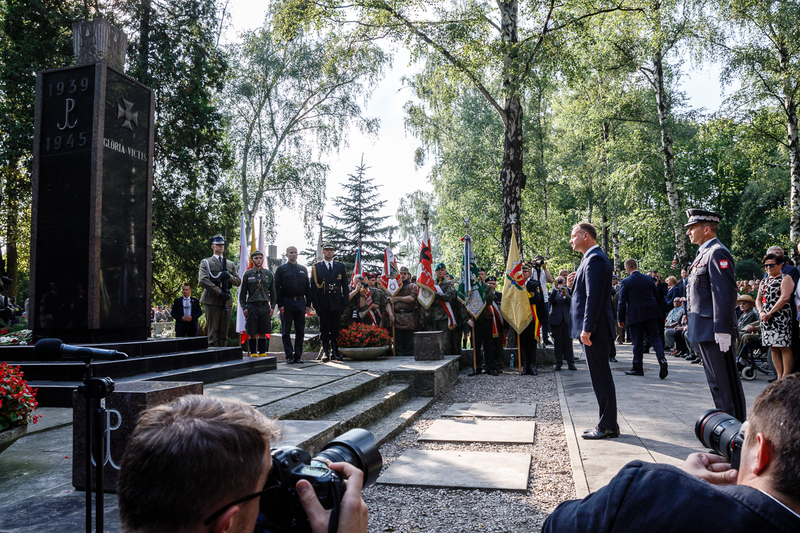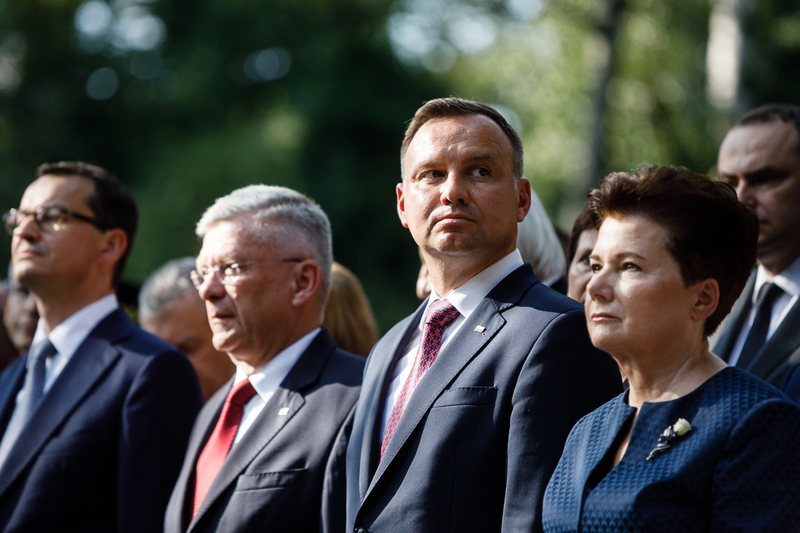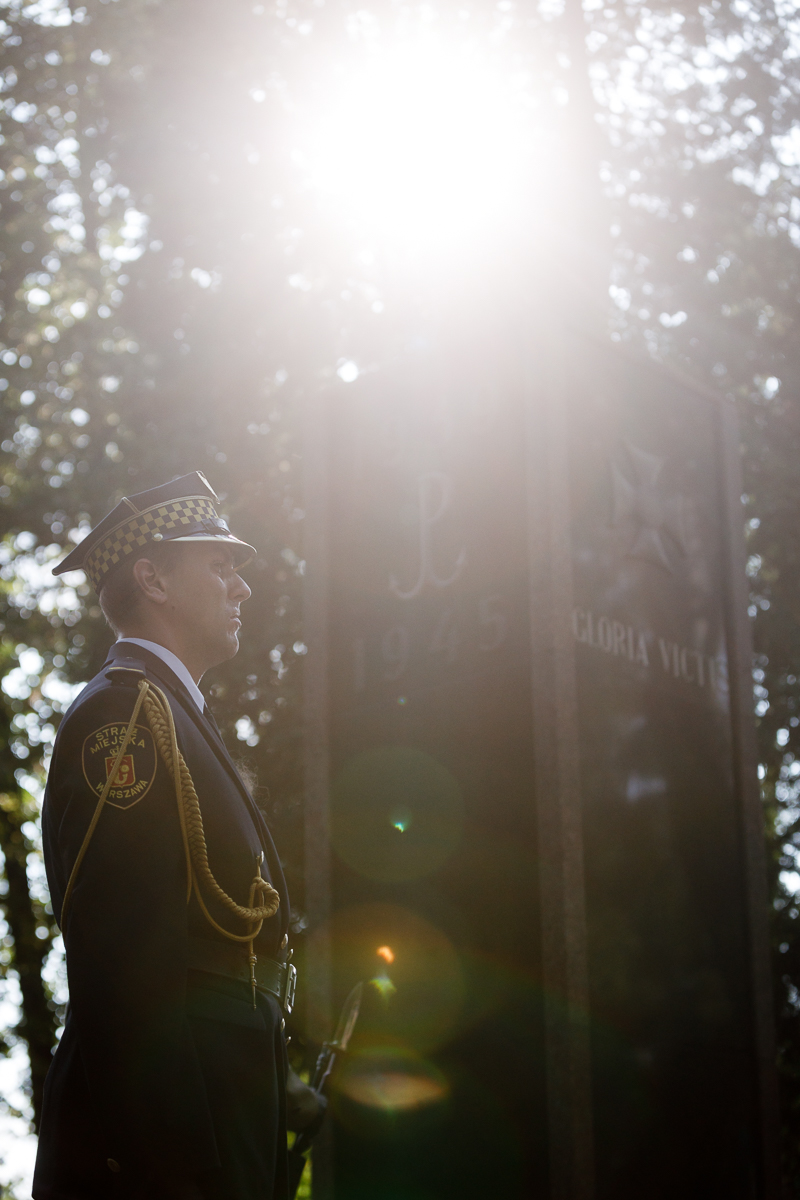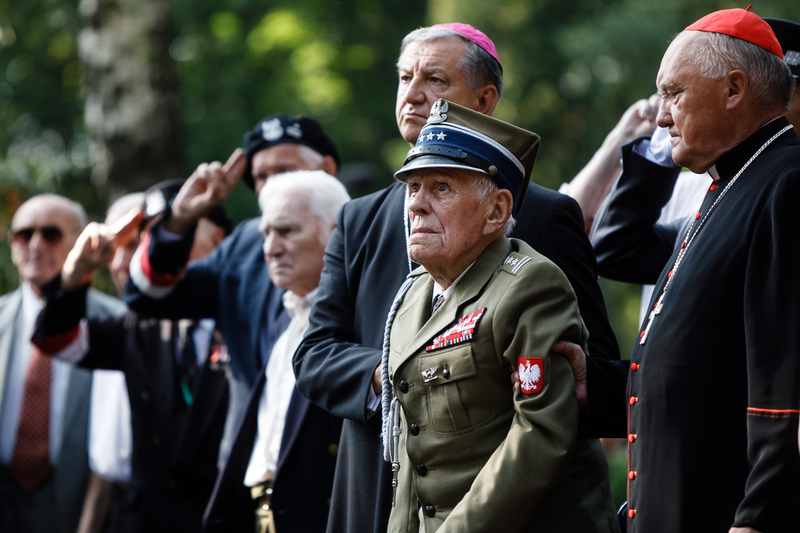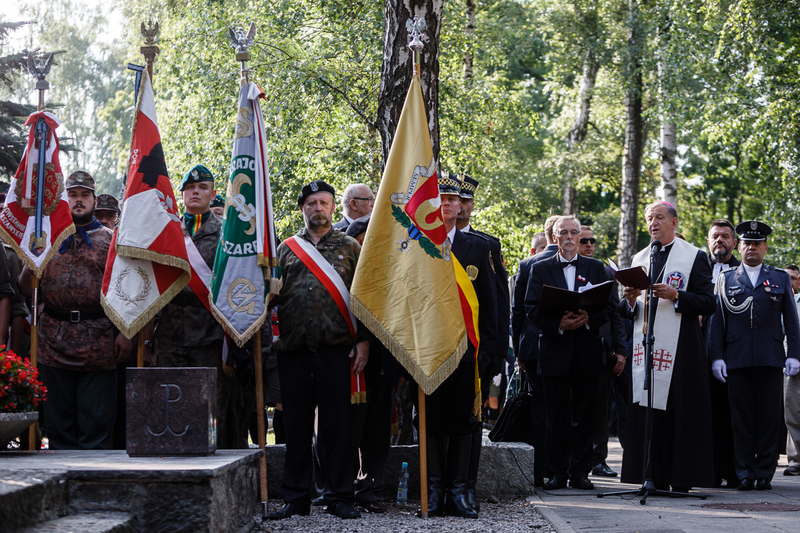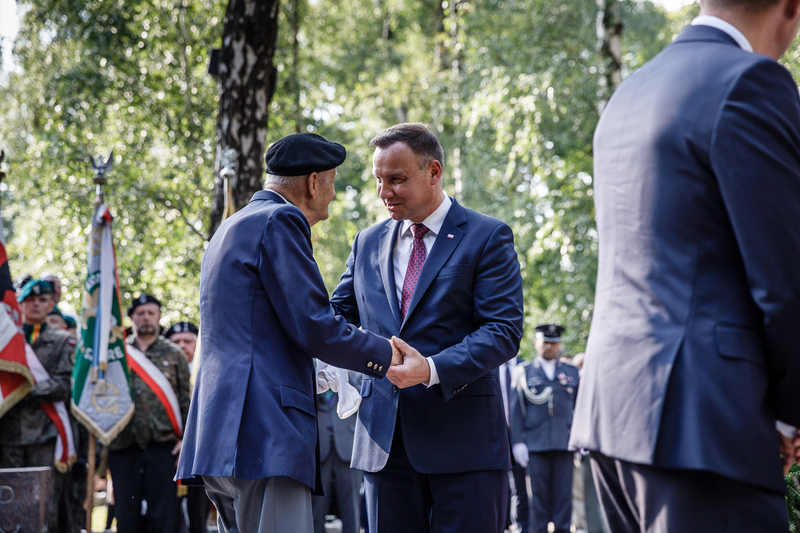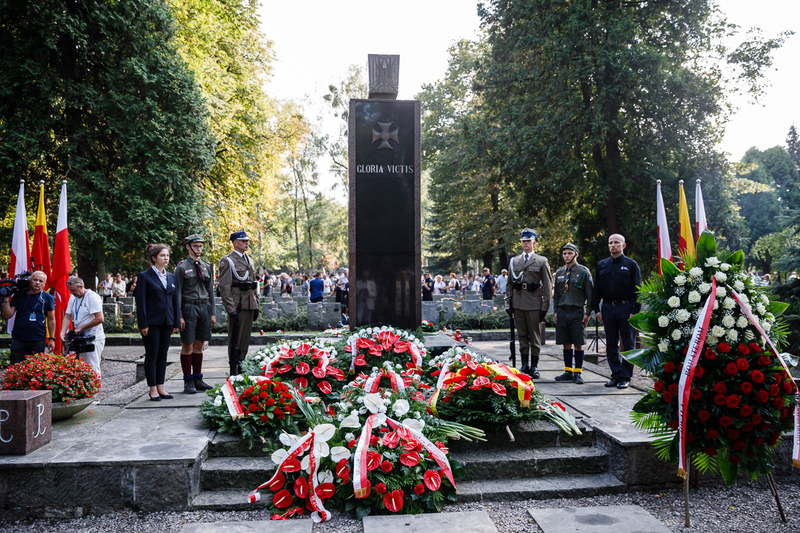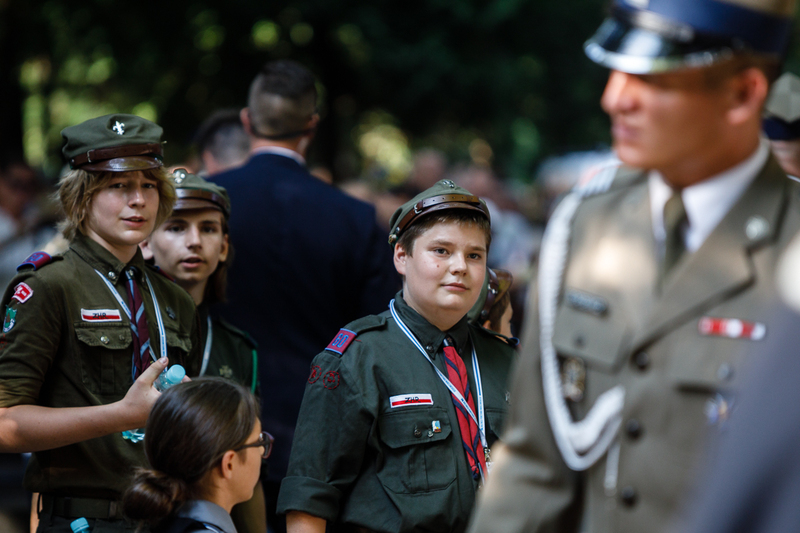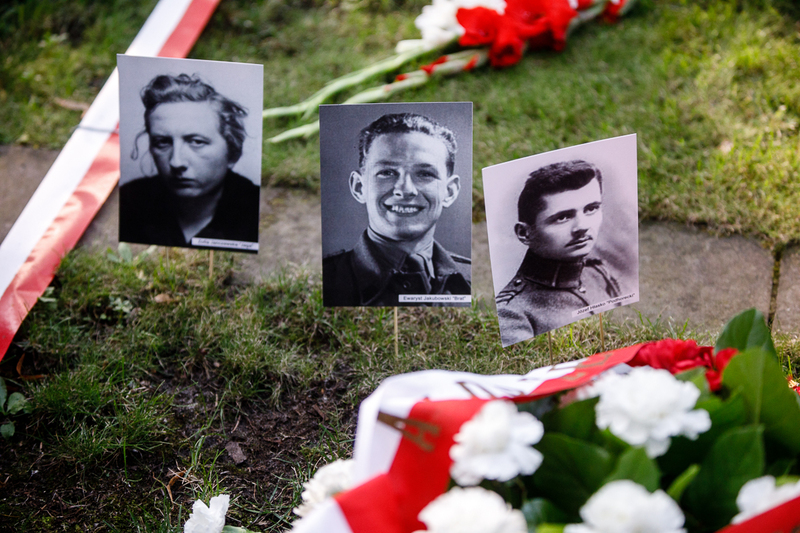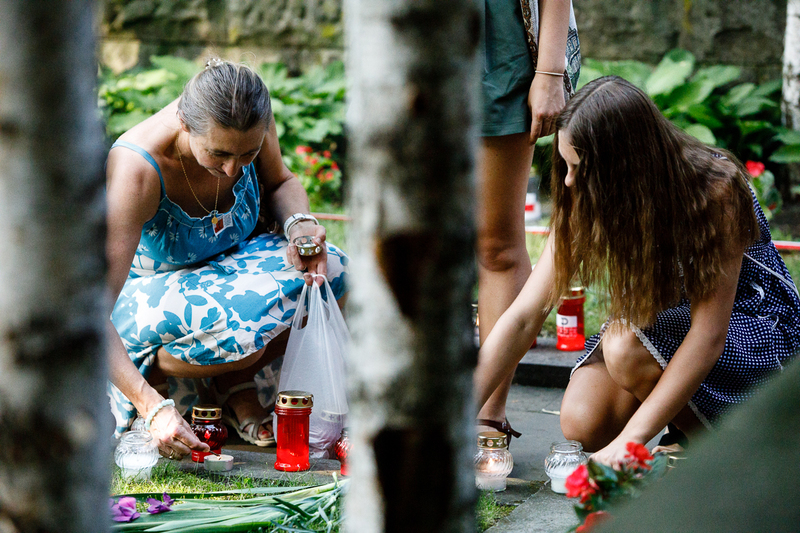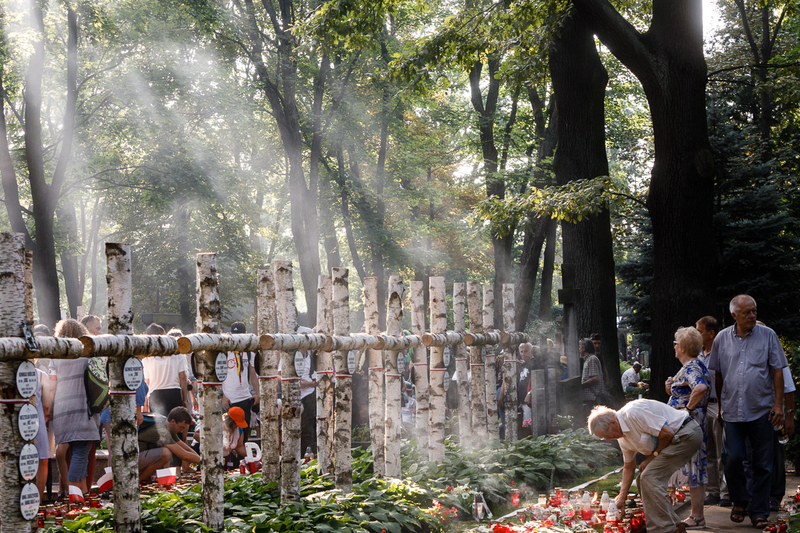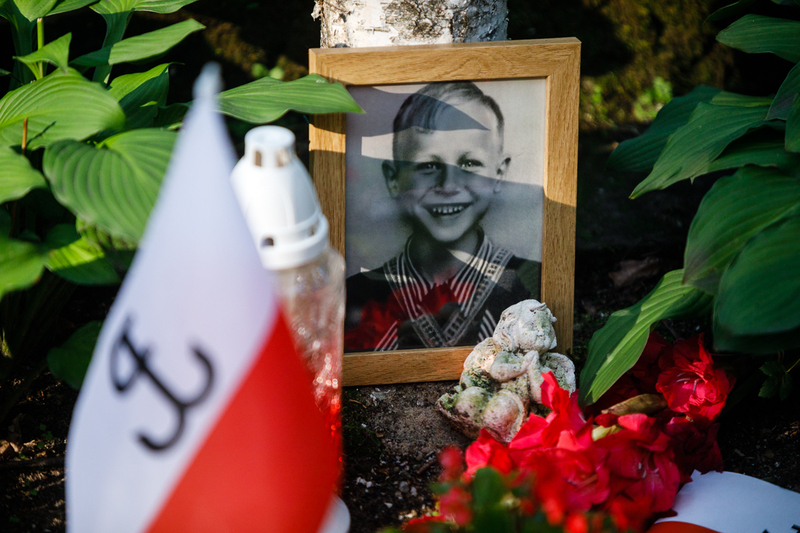- At home and at school, we were taught about patriotism. And this was the moment when we could demonstrate our patriotism not only through words, but also through our attitudes and behaviour. They constitued evidence that we could offer something to the country, to the city. We offered something of the highest valuable - our young lives. Unfortunately, so many young, wonderful people lost thier lives. But such were the times. We did not think about it at the time, we thought about fighting with the enemy. These matters were not considered in philosophical discourse then. It was a spontaneous anti-occupant rebellion - recalled Maria Regina Szamborska, participant of the Warsaw Uprising.
Both the insurgents and civilians reacted to the outbreak of fighting for Warsaw with great enthusiasm, which they demonstrated by hanging white and red flags on the streets. Joy, however, was accompanied by fear associated with the expected reaction of the Germans and uncertainty about the Soviet actions. Civilians actively supported the insurgents, providing them with food, organizing facilities for Home Army soldiers, caring for the wounded, building barricades and clearing the debris.
Colonel Kazimierz Iranek-Osmecki the Head of Section II: (Intelligence and Counterintelligence) of the Home Army Headquarters described the need to take part in a patriotic struggle in such a way: "It would take 5 years of living in occupied Warsaw to be able to understand what the civilians and soldiers felt. One had to live day by day, hour by hour for 5 years being aware of the existence of the Pawiak prison. During those months, one had to see friends disappearing one after the other and feel a pain in the heart, one had to hear the sounds of volleys every day, so-frequent that one would not hear them anymore, get used to them, like to the church bells; at the street corner on a sad winter evening or a luminous spring morning one had to silently assist in the execution of ten, twenty, fifty friends, brothers or strangers, taken randomly from the crowd, spent under a wall, mouth covered with plaster and eyes expressing despair or pride. One had to experience it all to understand that Warsaw could not resign from putting up a fight."
The Warsaw Uprising, initially planned to last several days, fell on October 3 after 63 days of heroic struggle. As a result, 16,000 to 18,000 soldiers of the Home Army and from 150,000 to 180,000 civilians died. After the capitulation Warsaw was completely destroyed by the Germans. Although from a military point of view, the uprising ended in defeat, the memory of this rebellion was nurtured by successive generations of Poles, shaping their attachment to the meaning of the word independence.
After the Second World War, the communist authorities treated the insurgents and other Home Army soldiers as well as members of independence organizations, extremely distrustfully. Recognized as the enemies of the "People's" Poland, they were persecuted and stigmatized as "traitors" who caused a "pointless uprising". The commanders of the uprising were arrested on absurd charges of betrayal of the homeland. Many were sentenced in fake trials.
But the communists never managed to break the spirit of independence demonstrating by the heroes of the Warsaw Uprising. Today, 74 years after the outbreak of the fights for Warsaw, their heroism is a moral signpost and an invaluable lesson of patriotism for us all.
